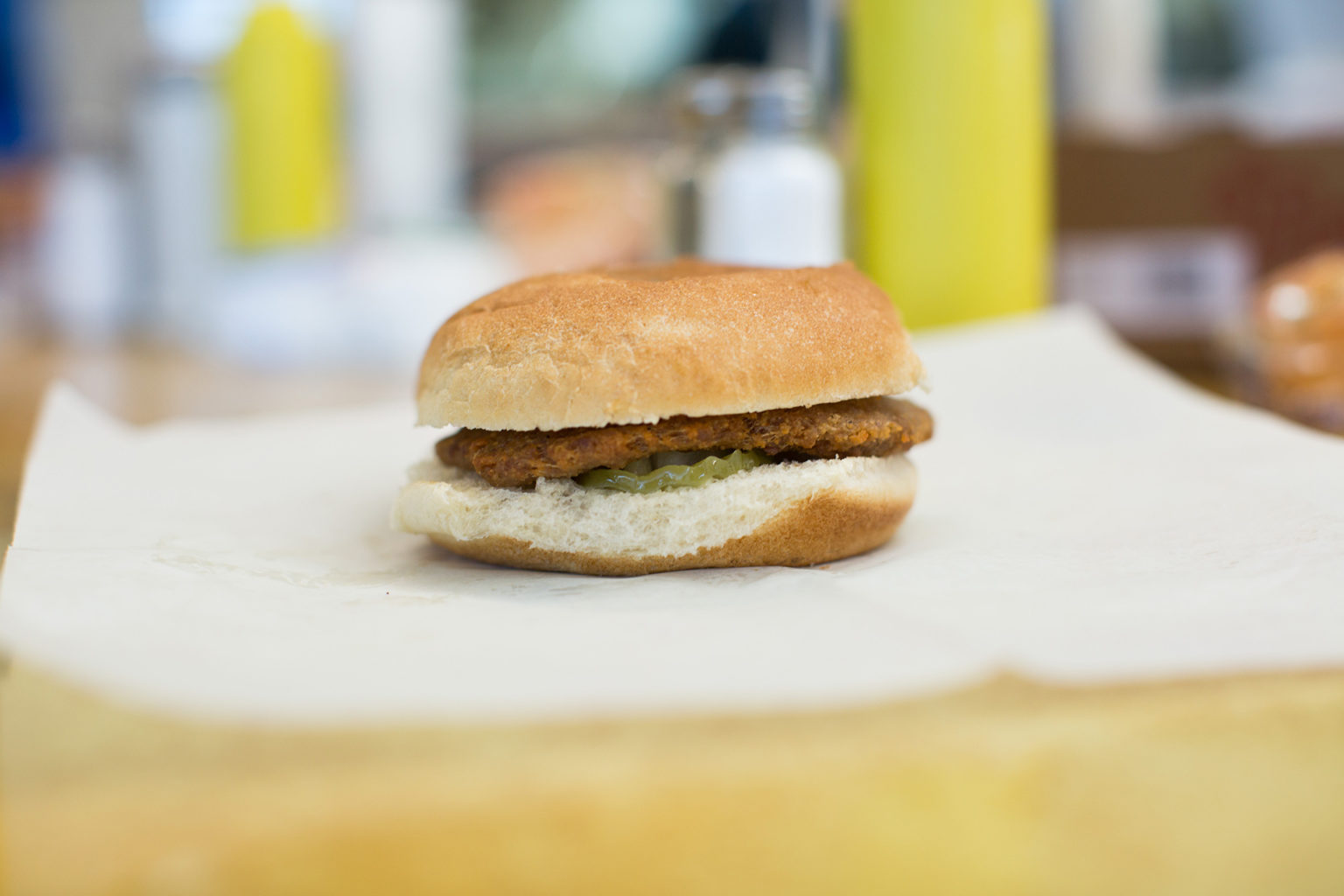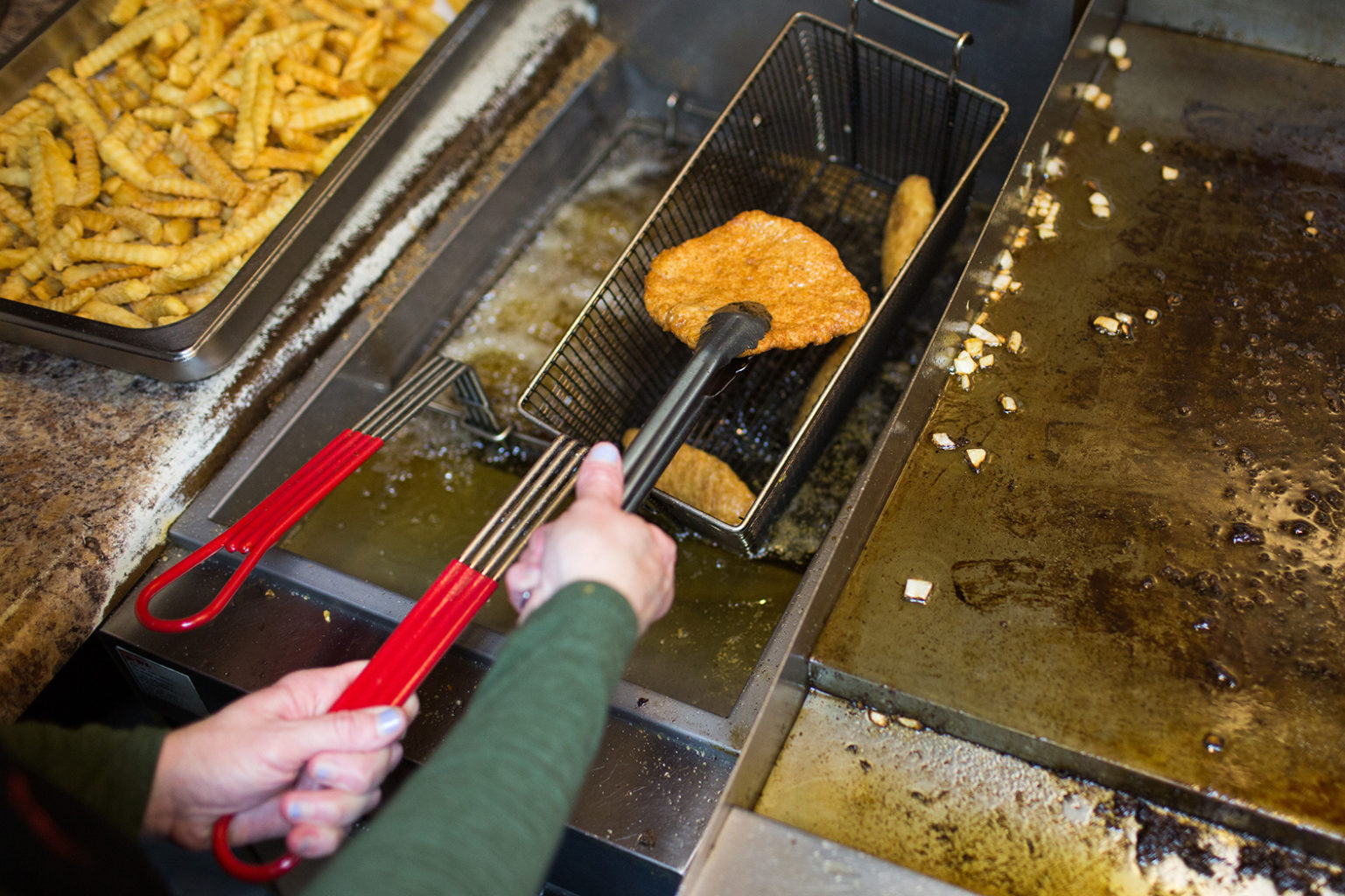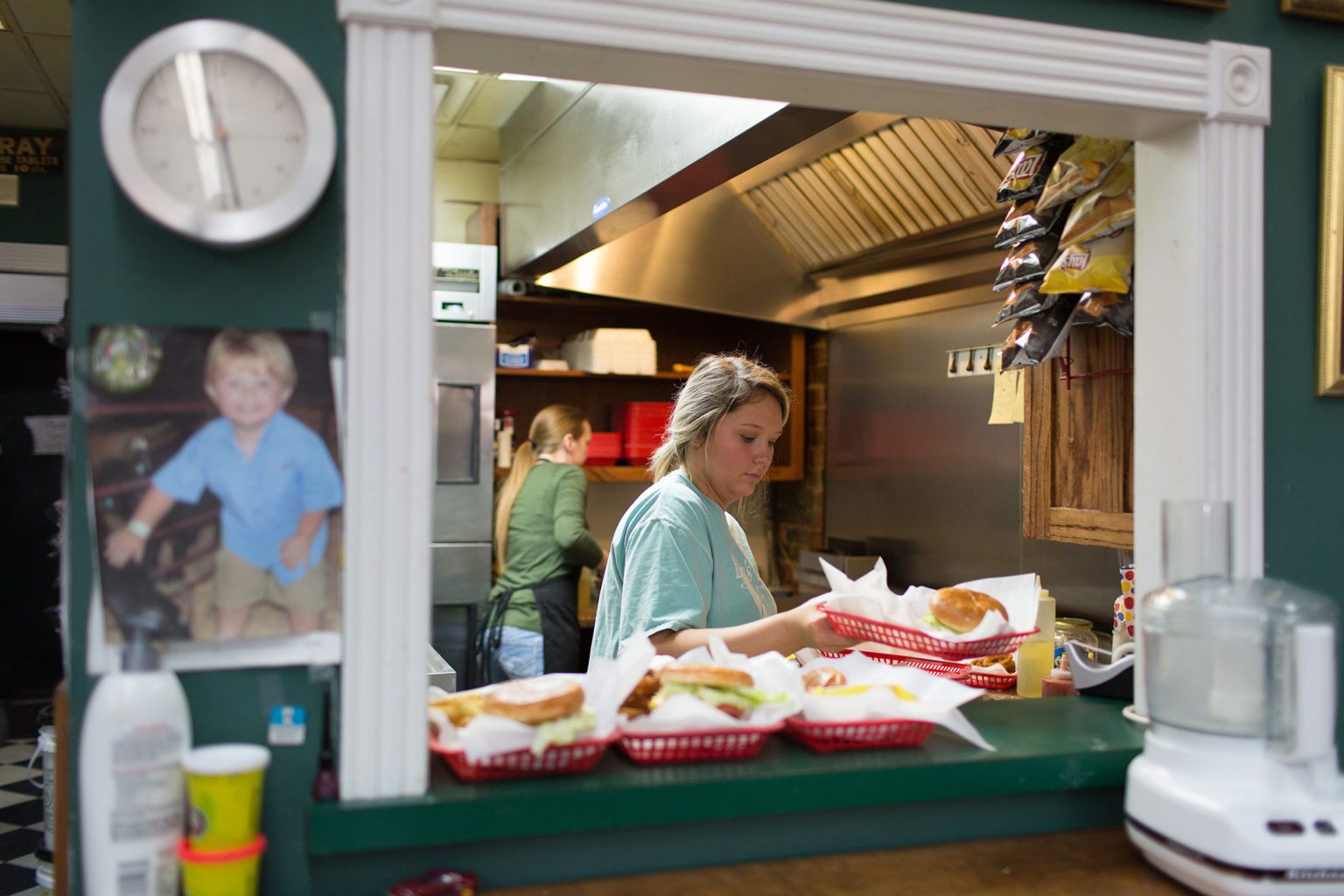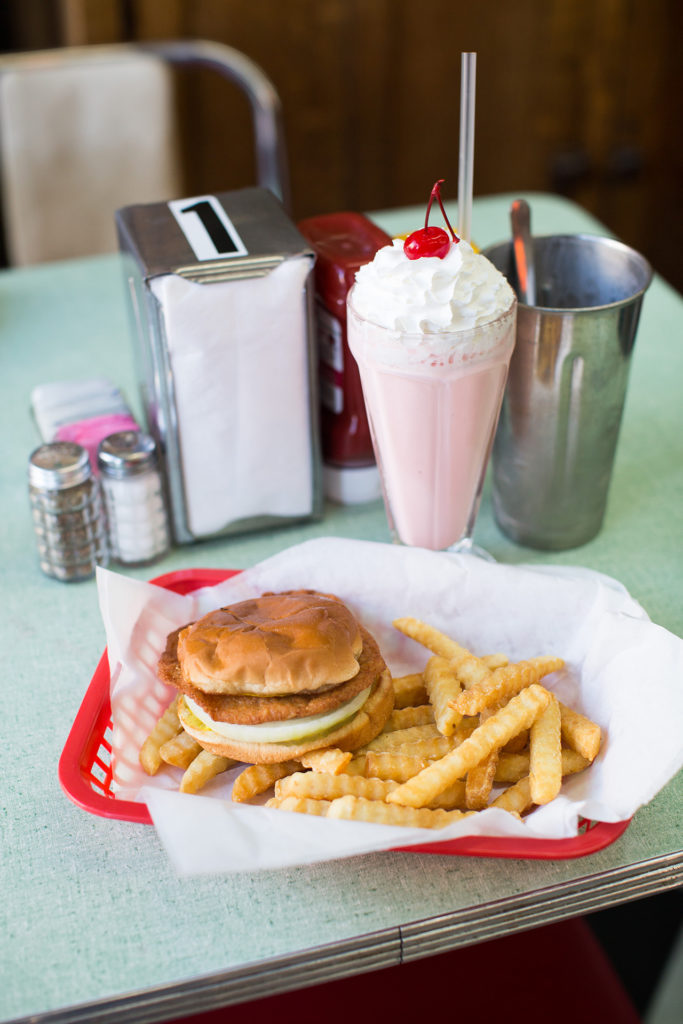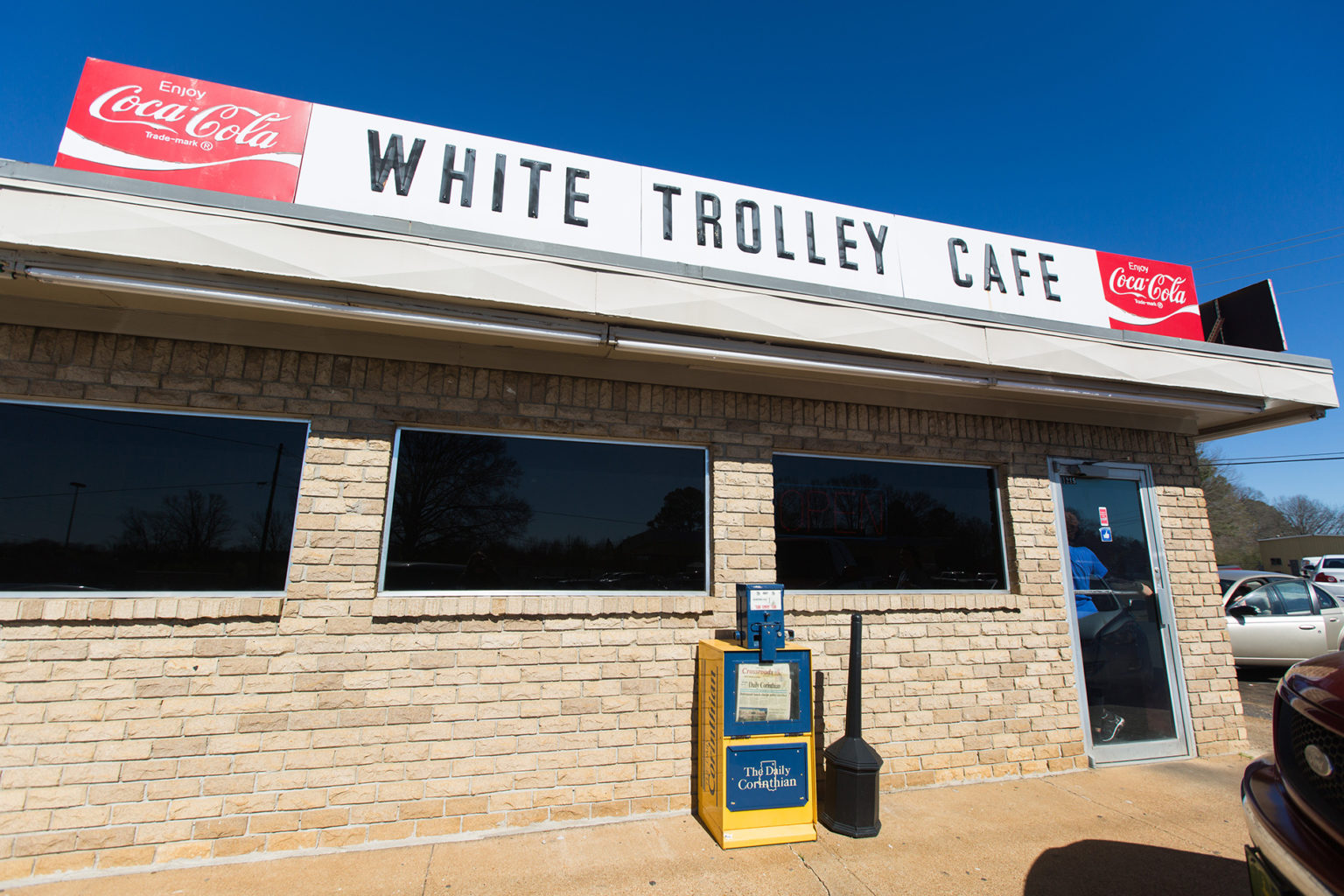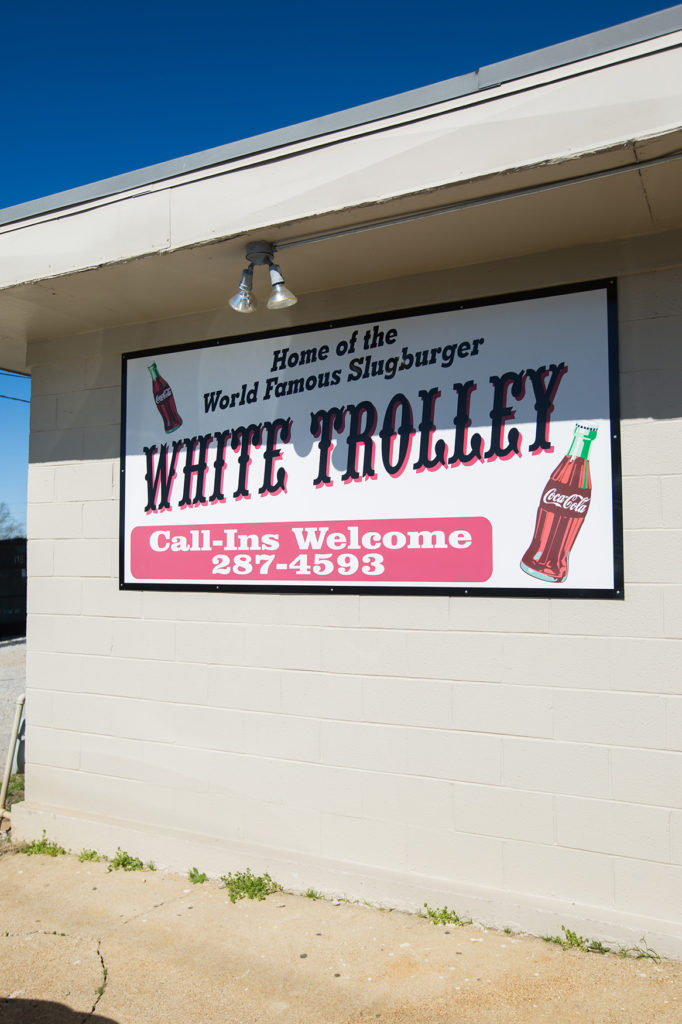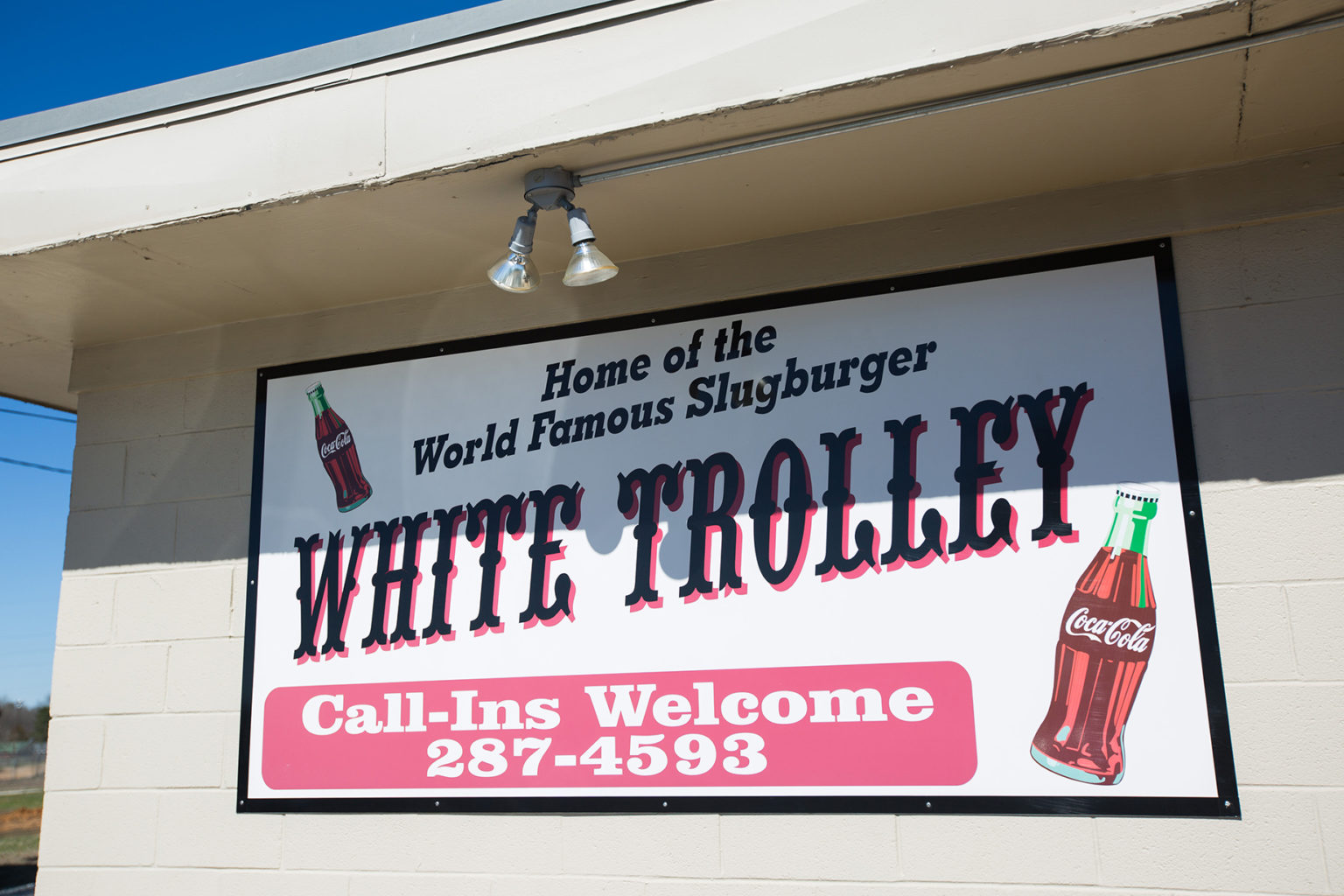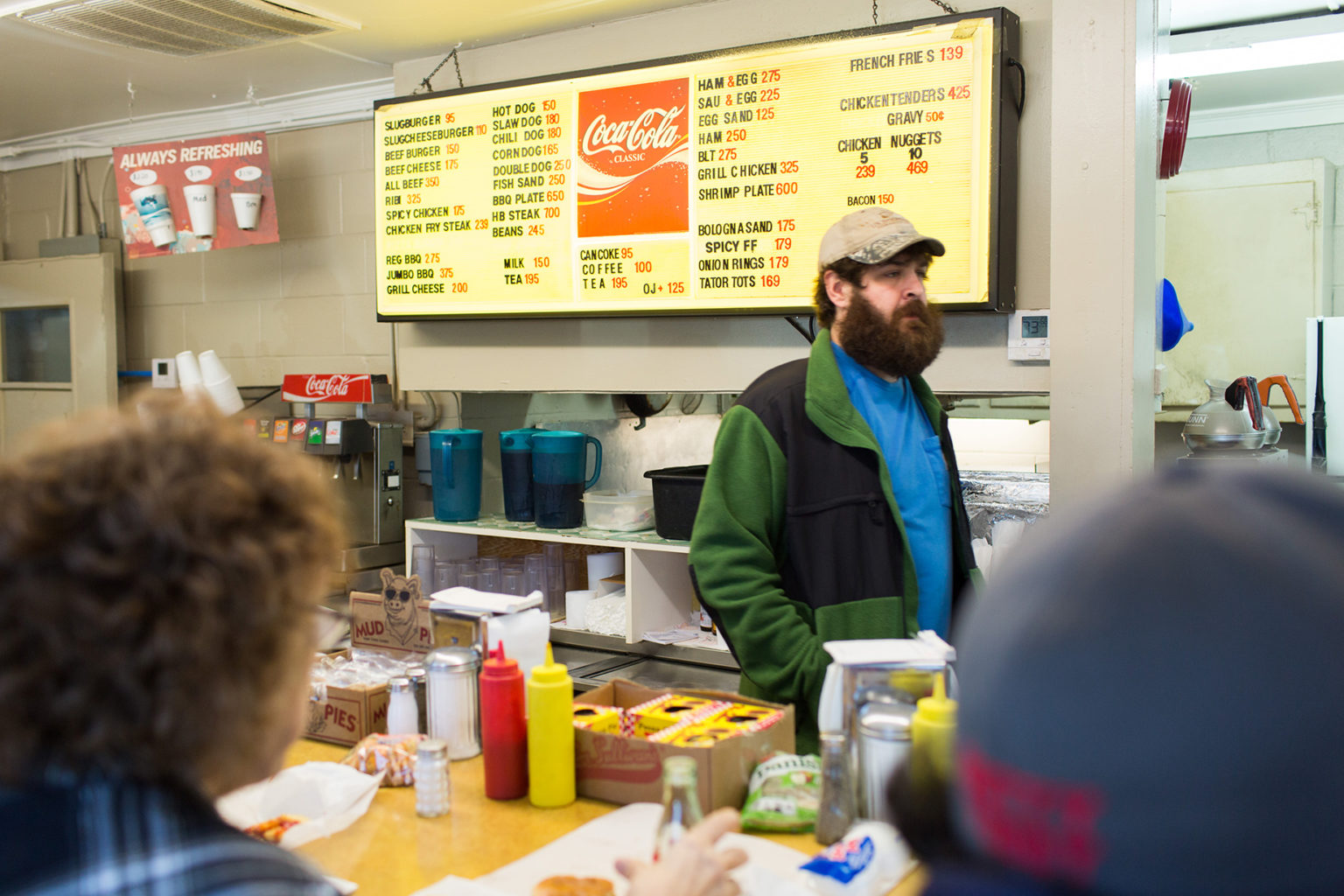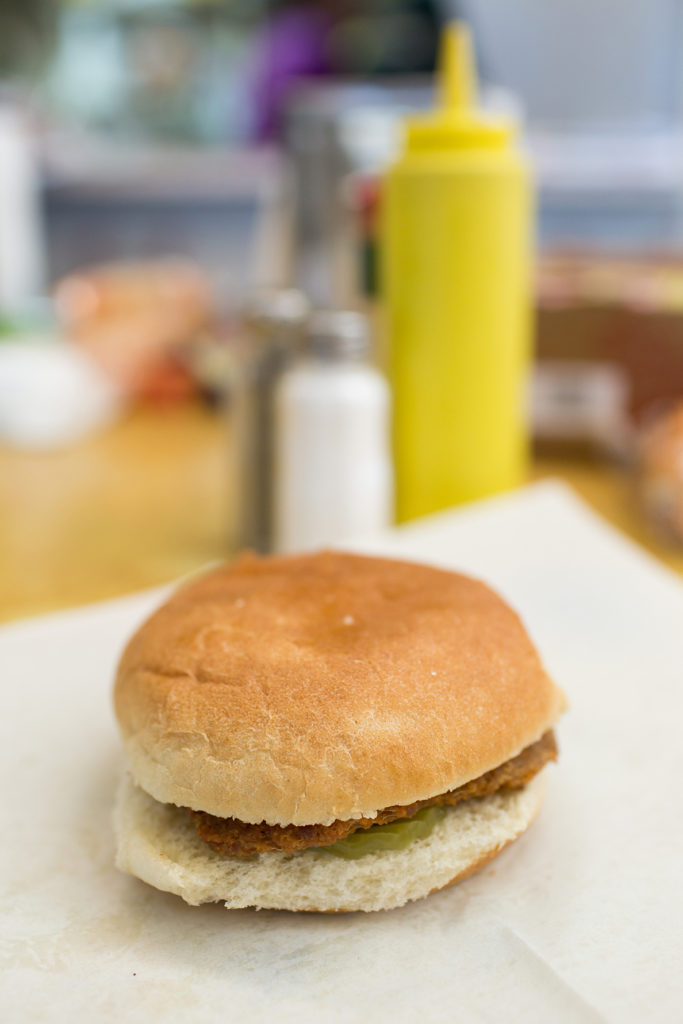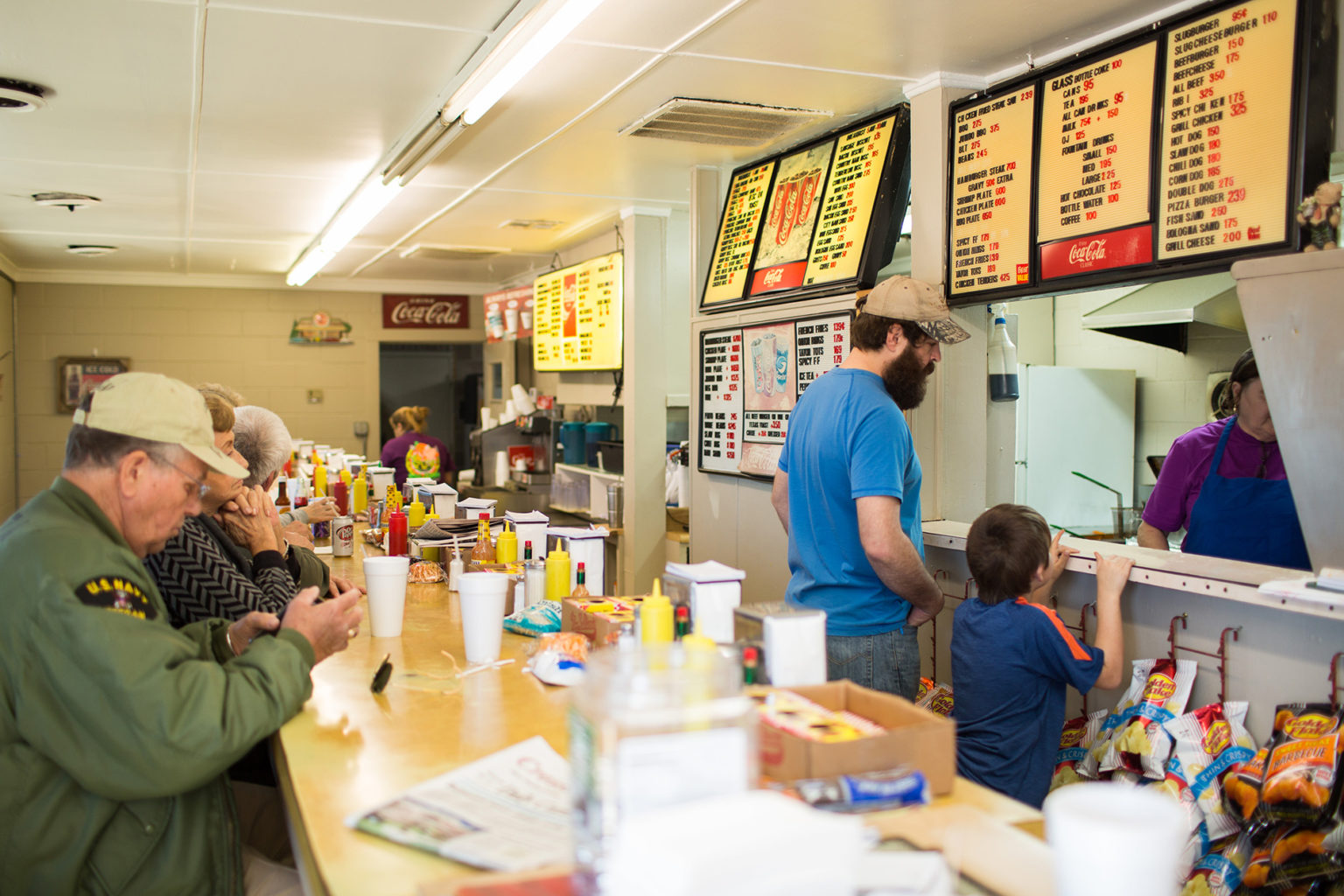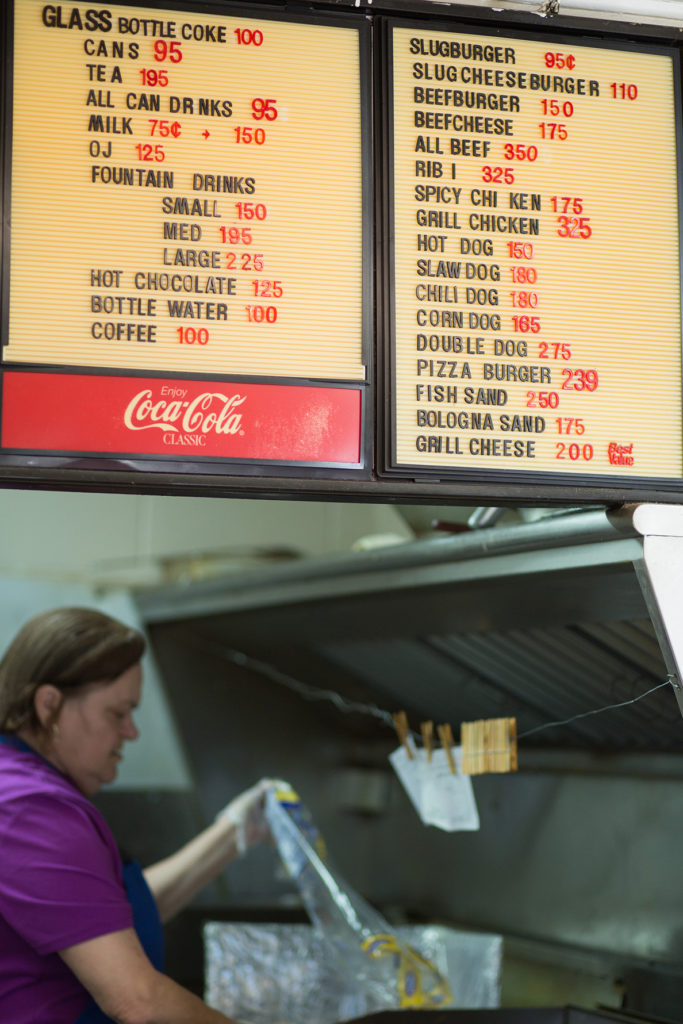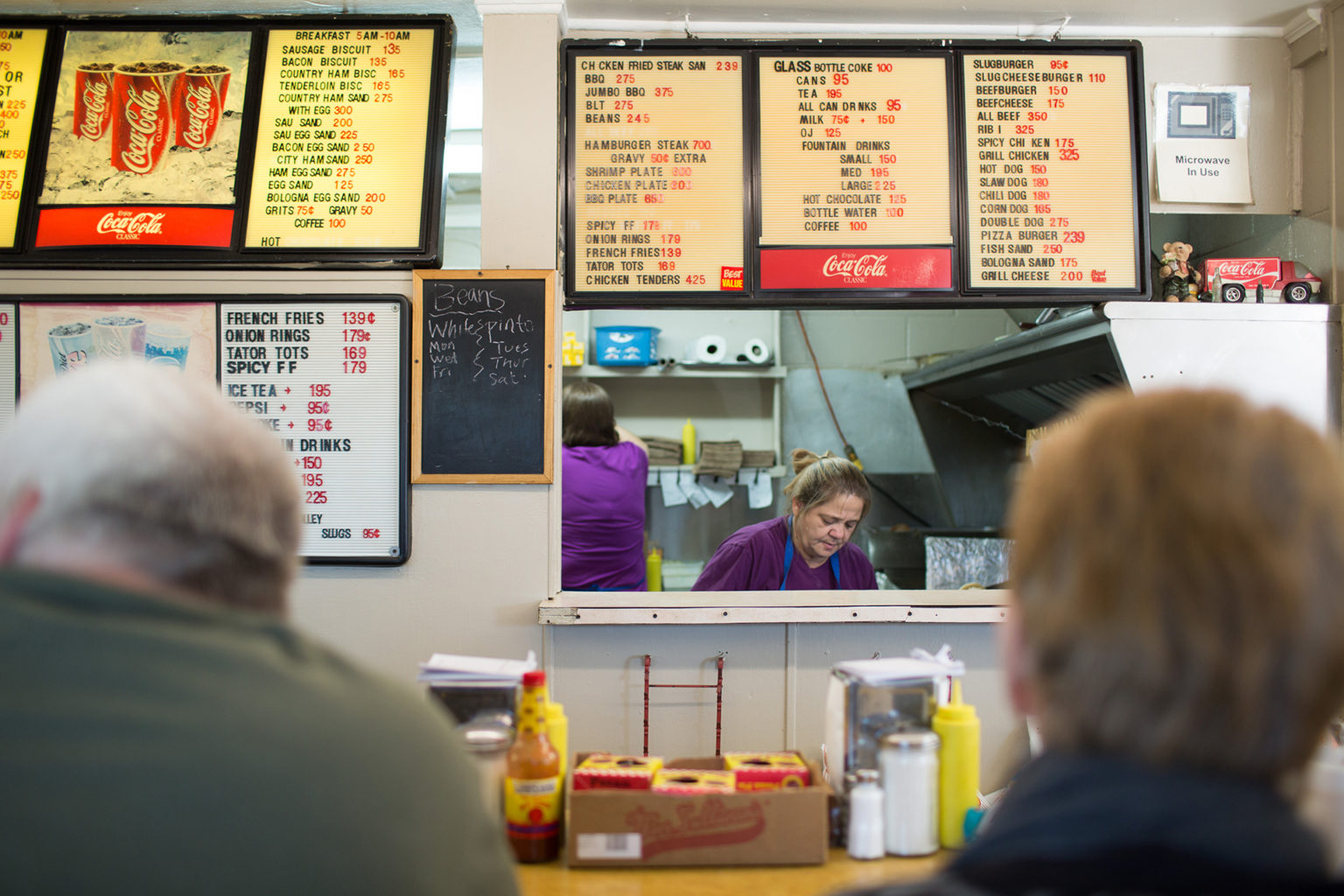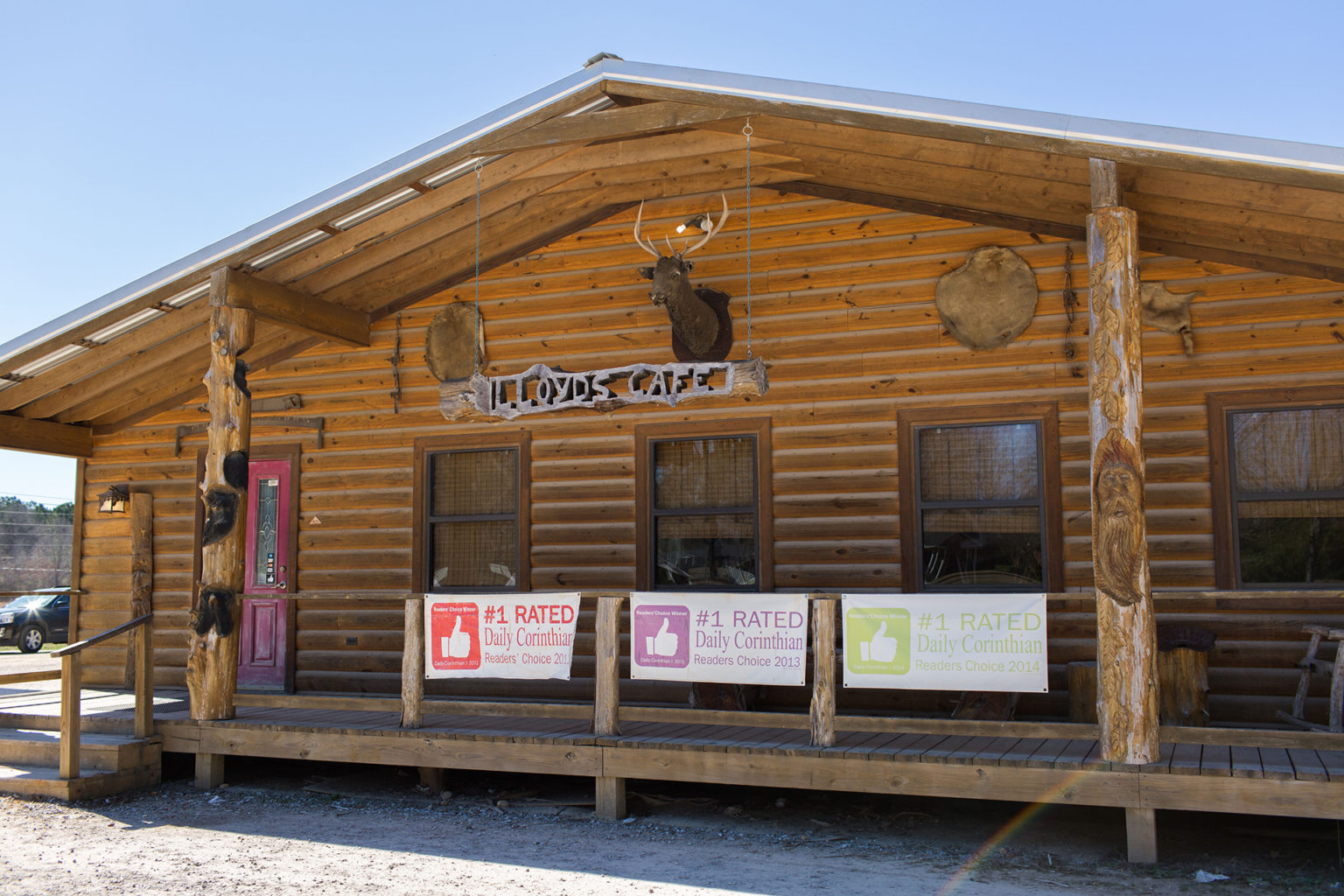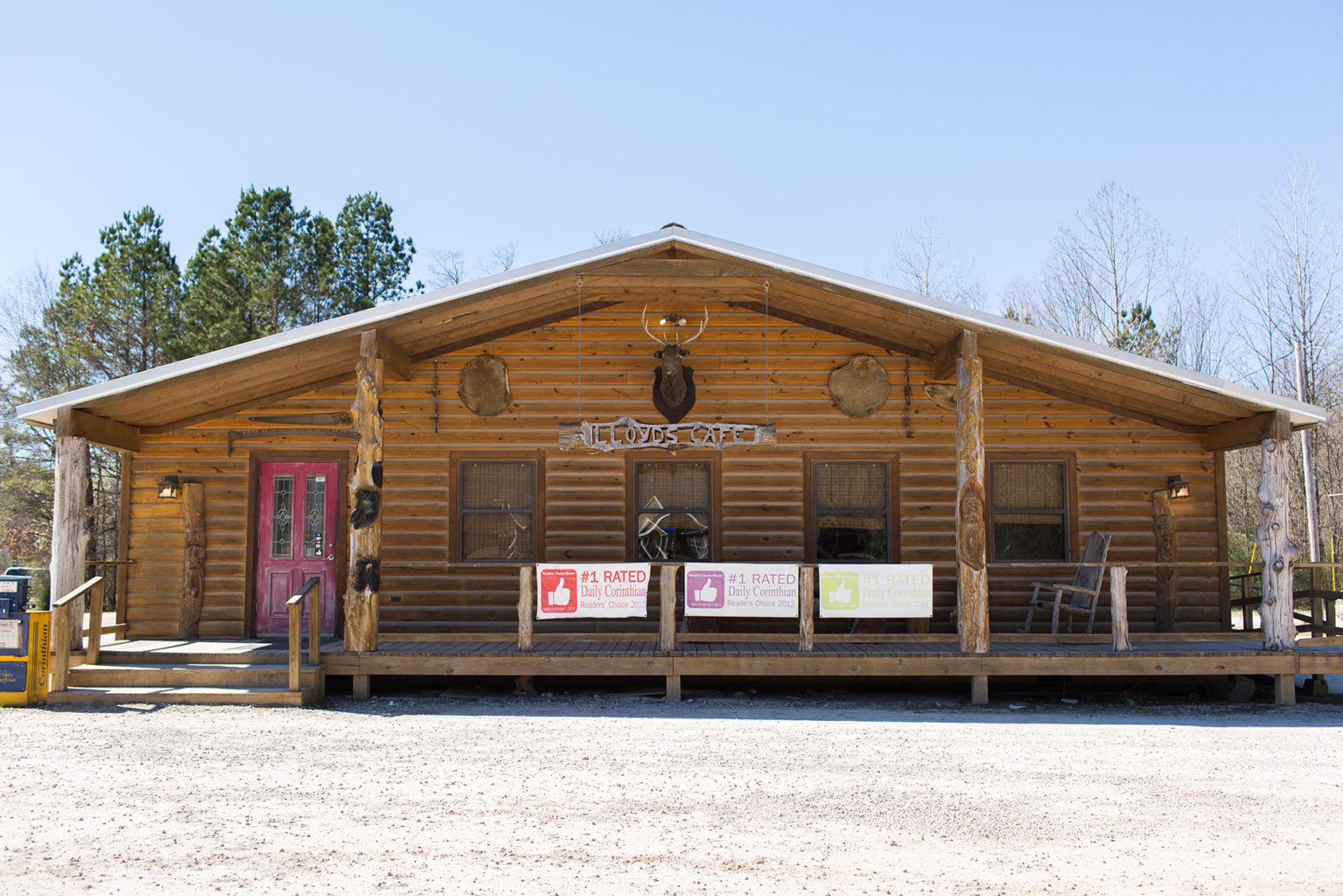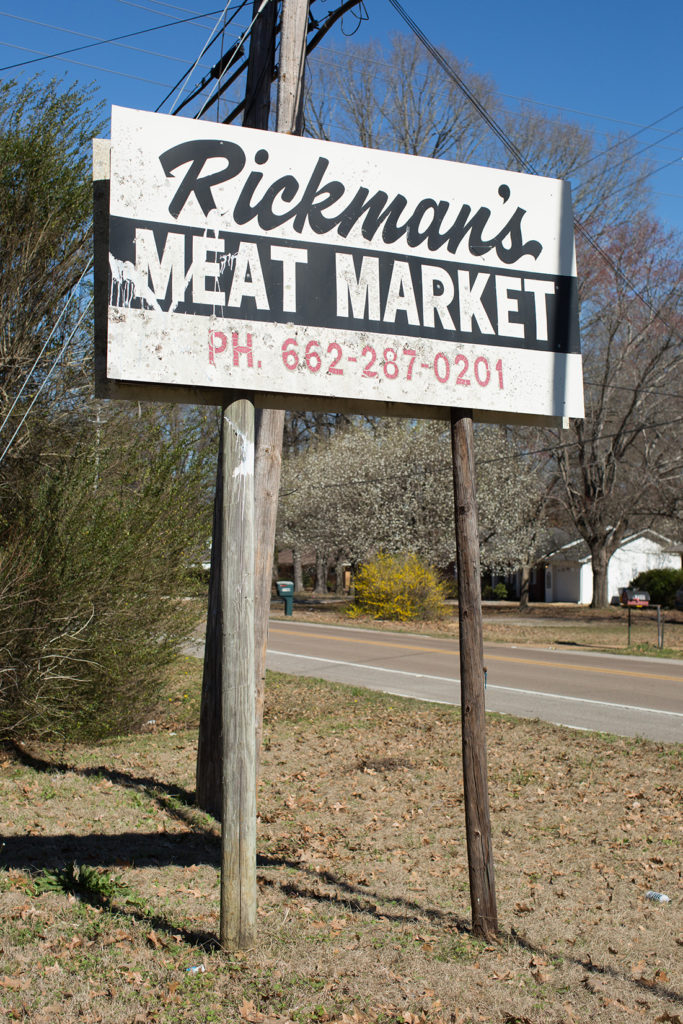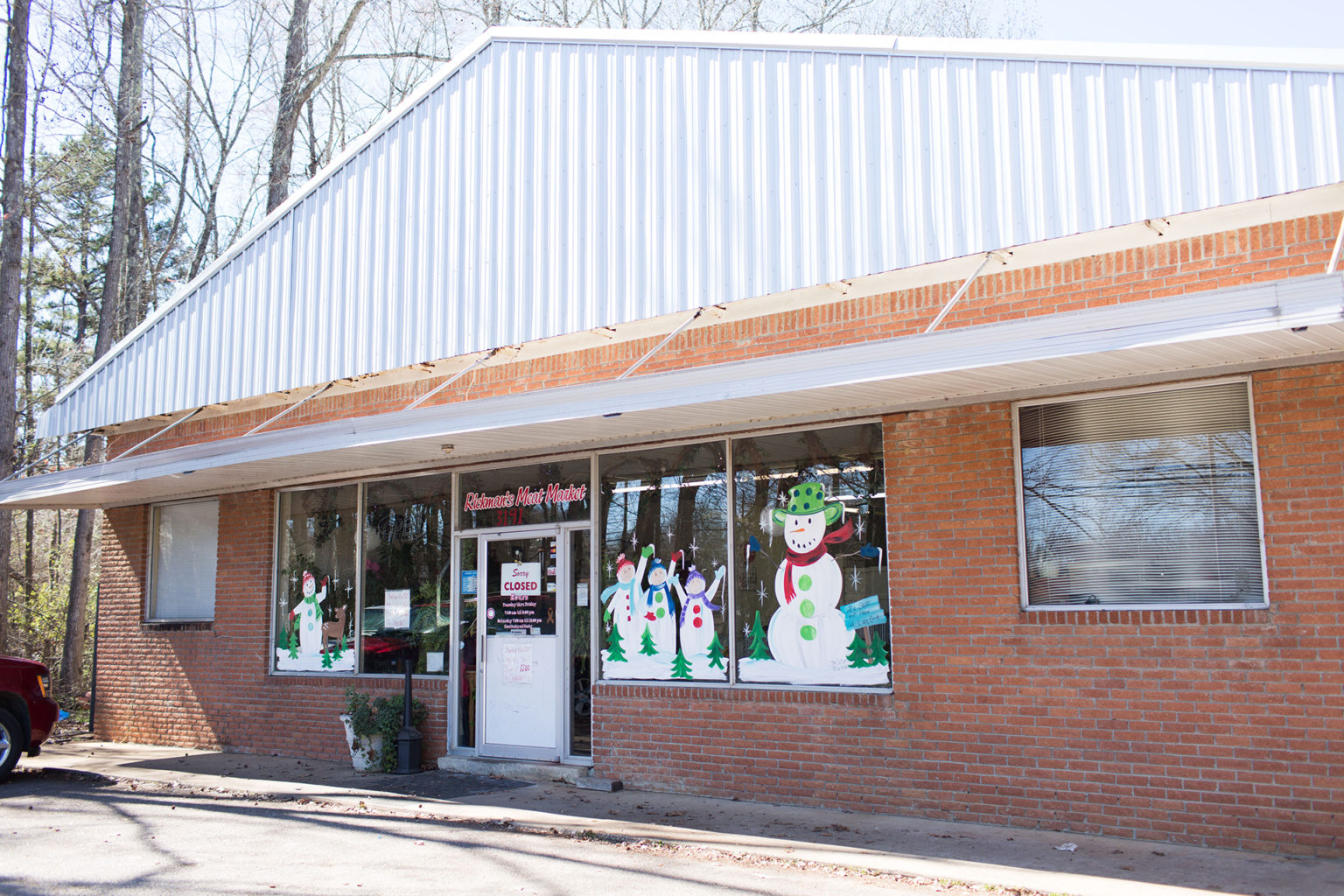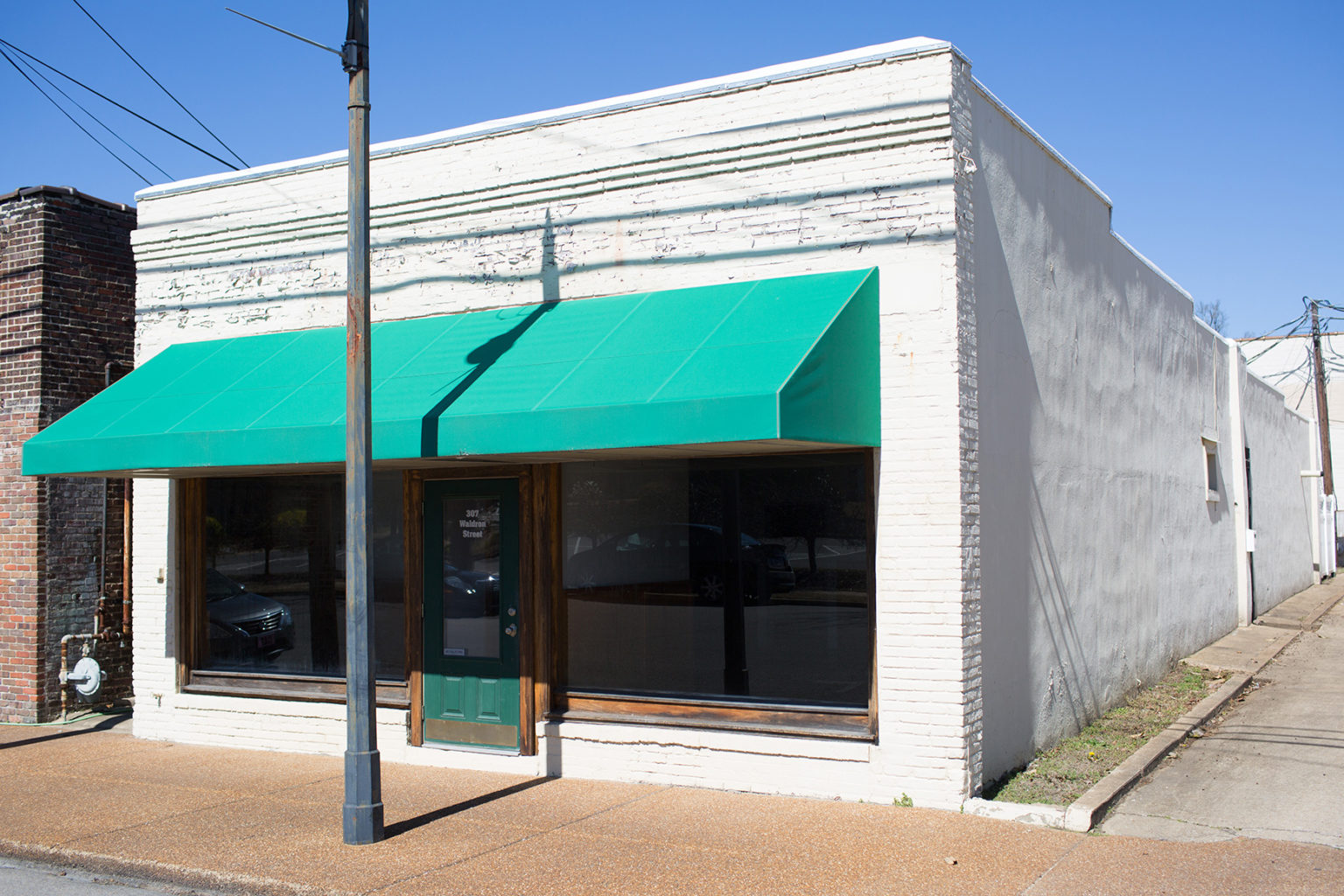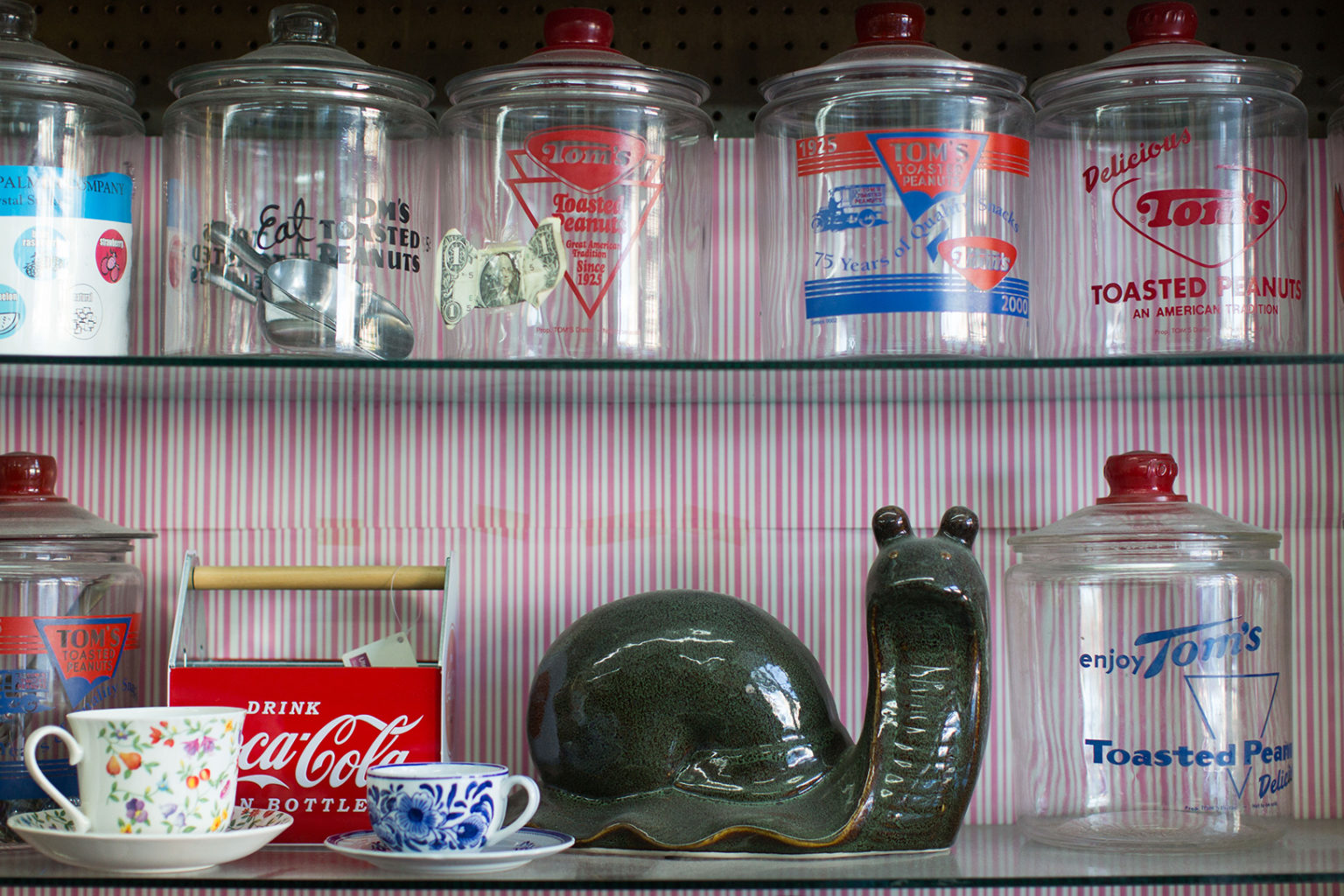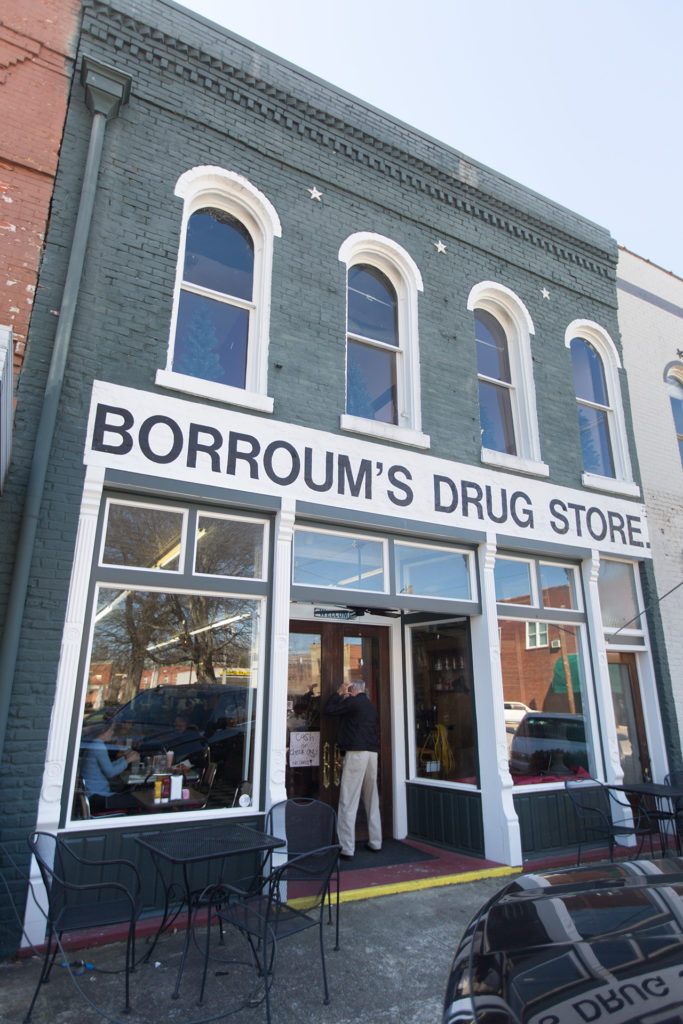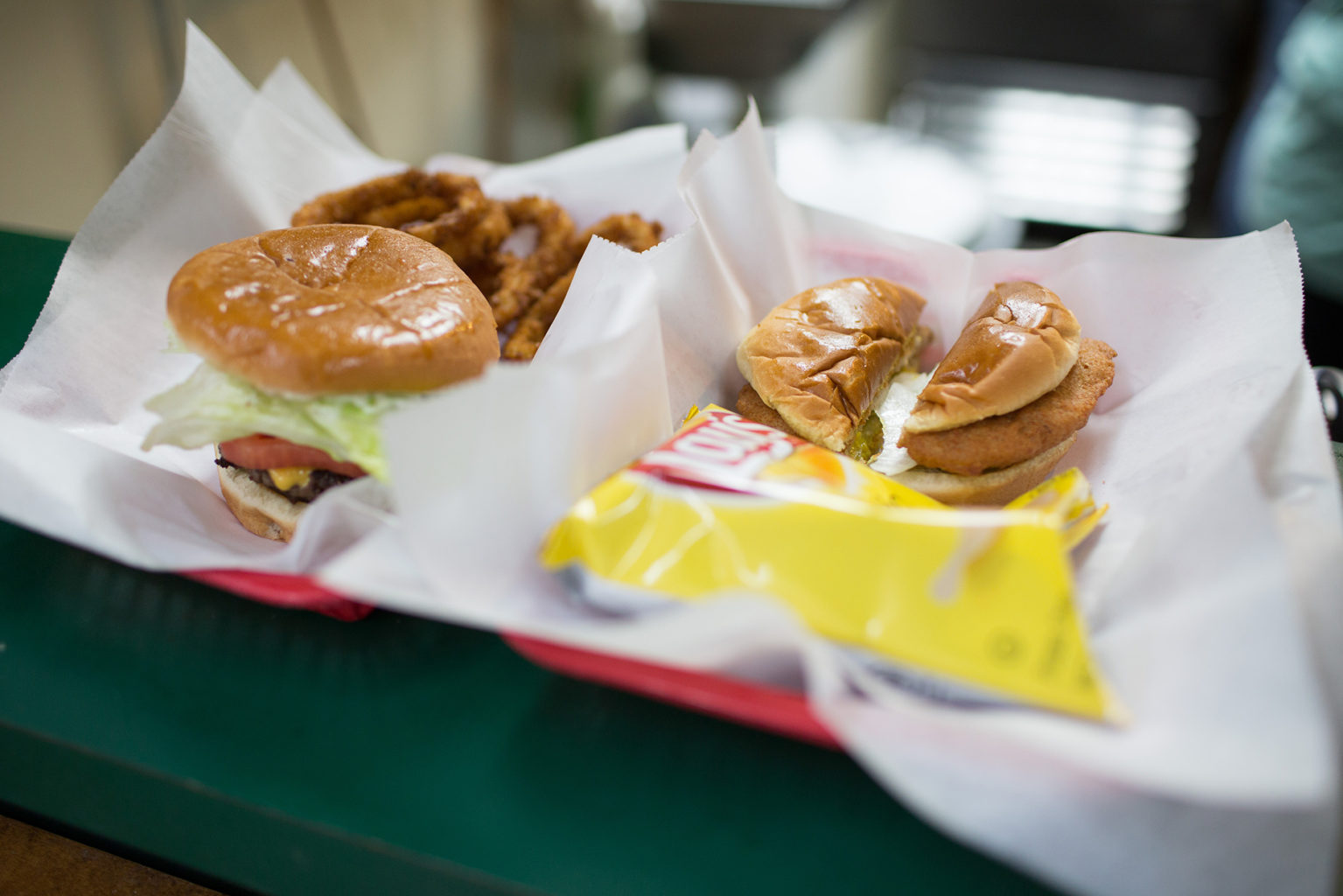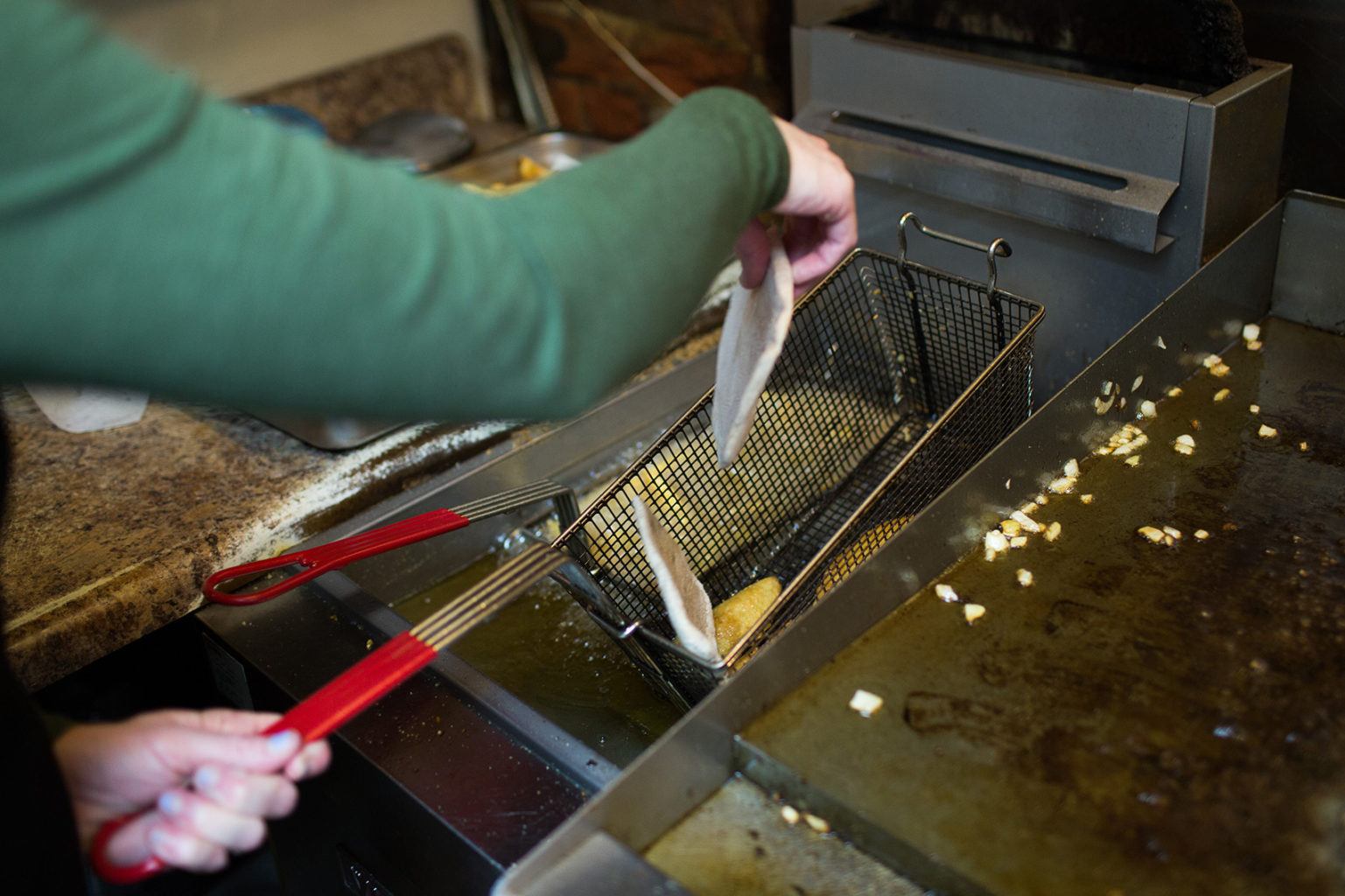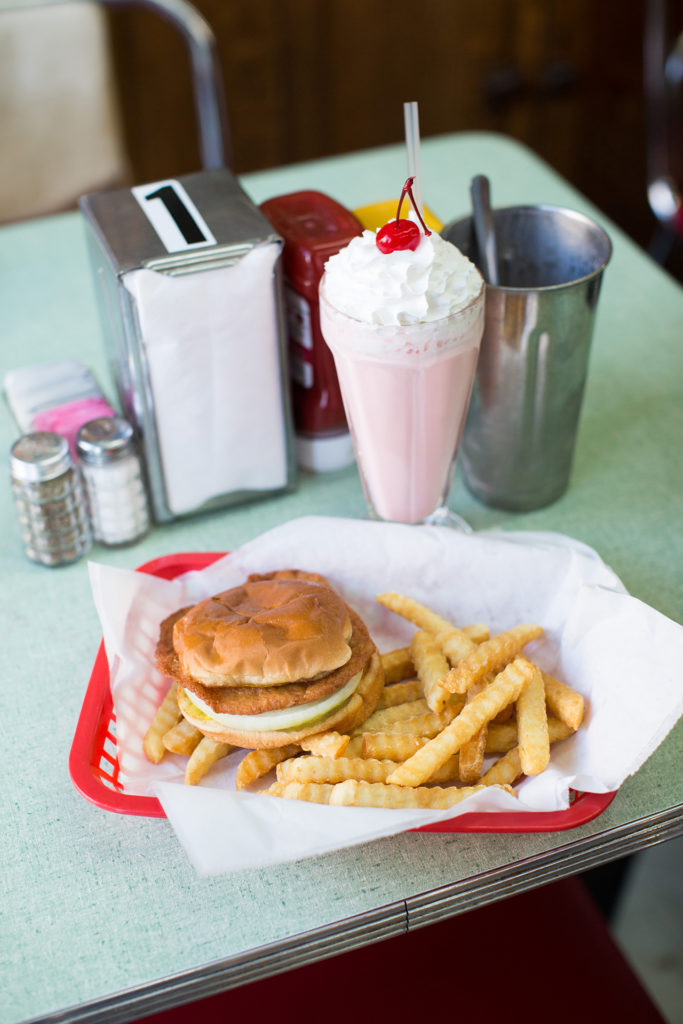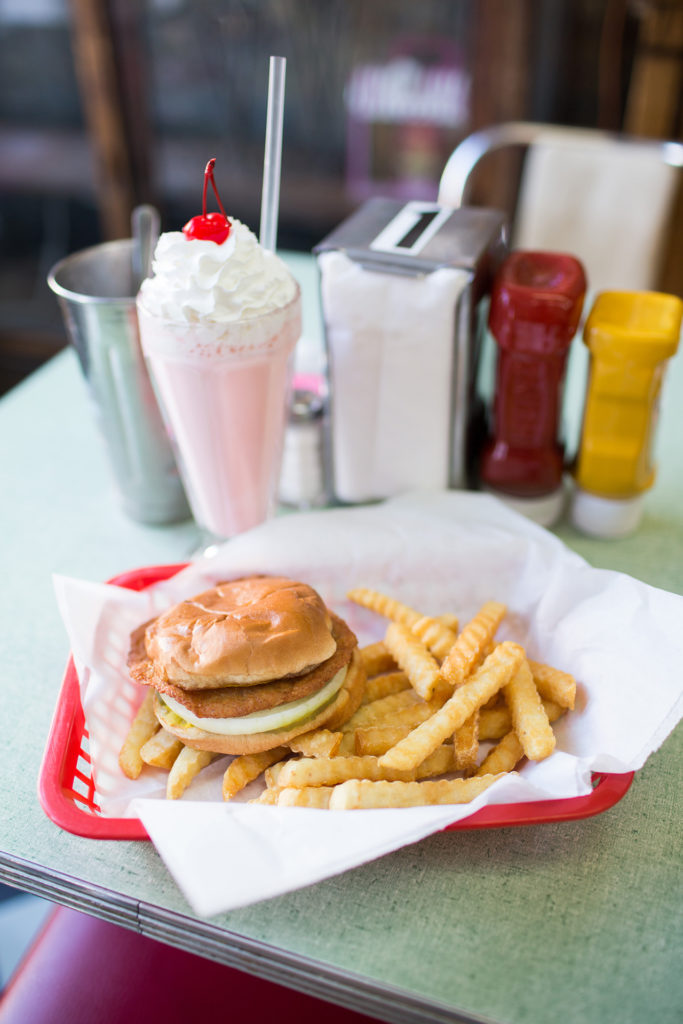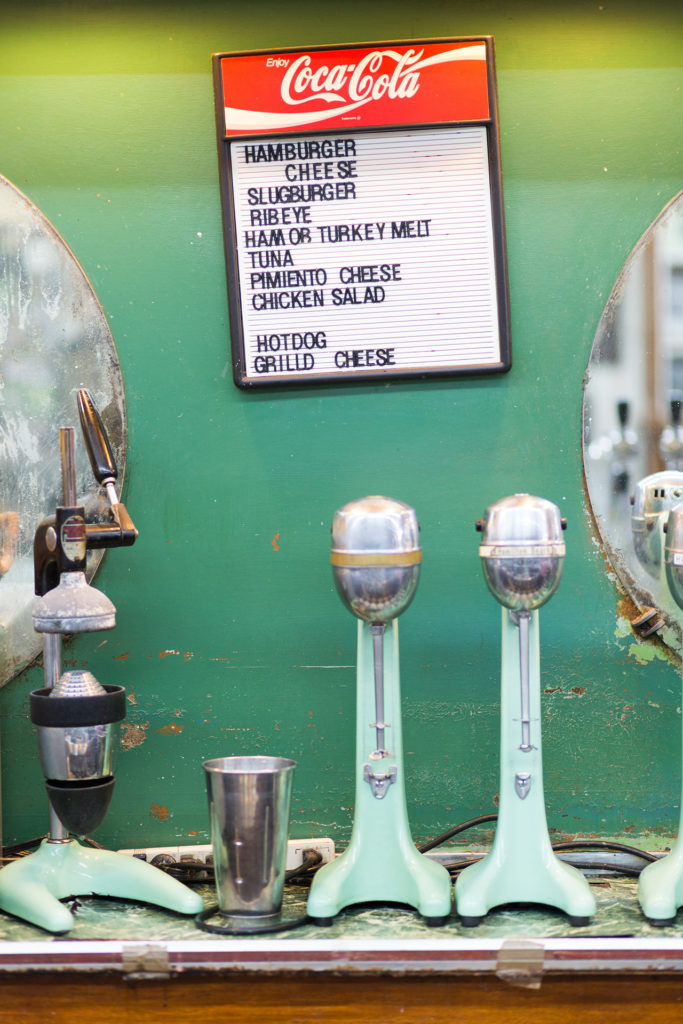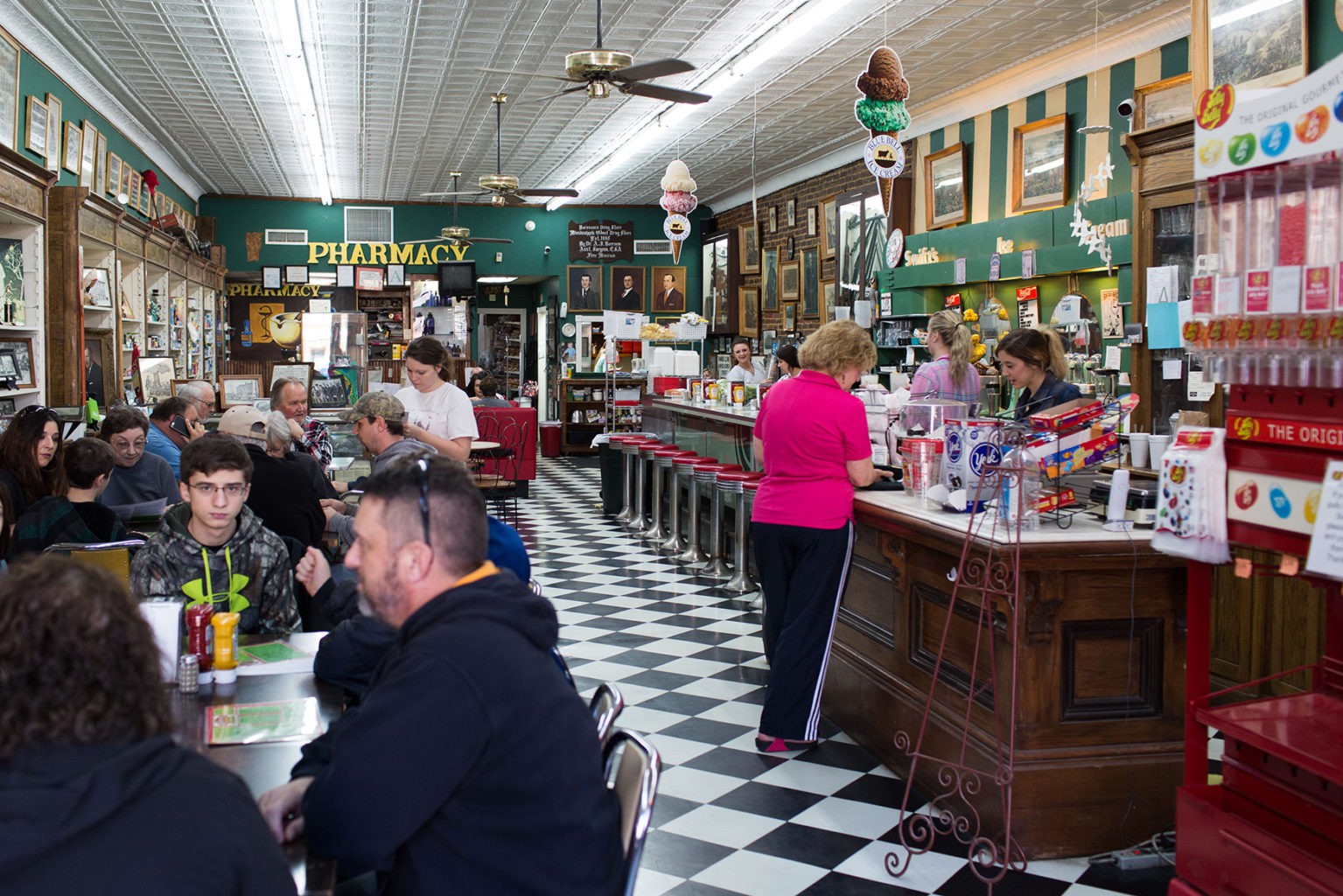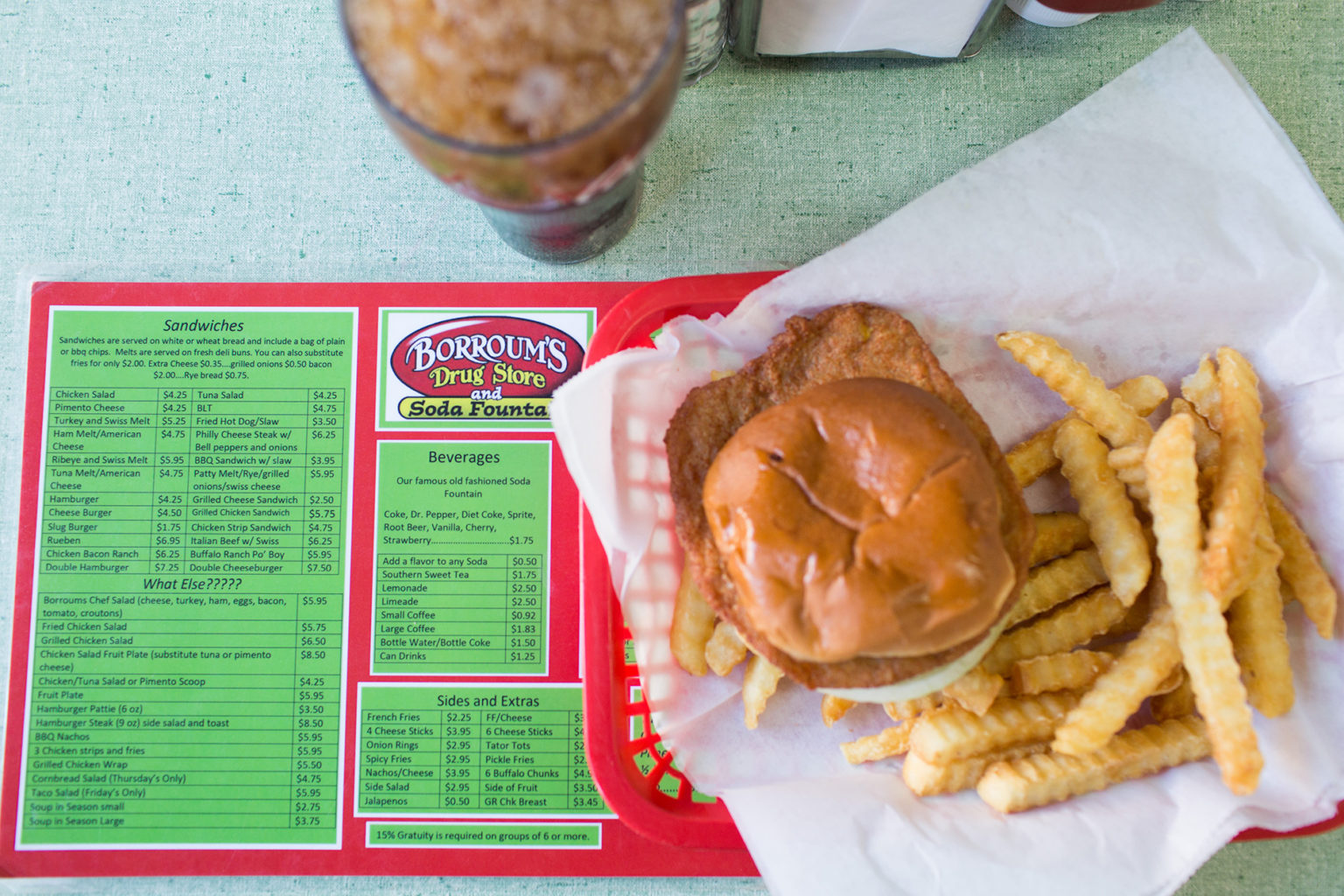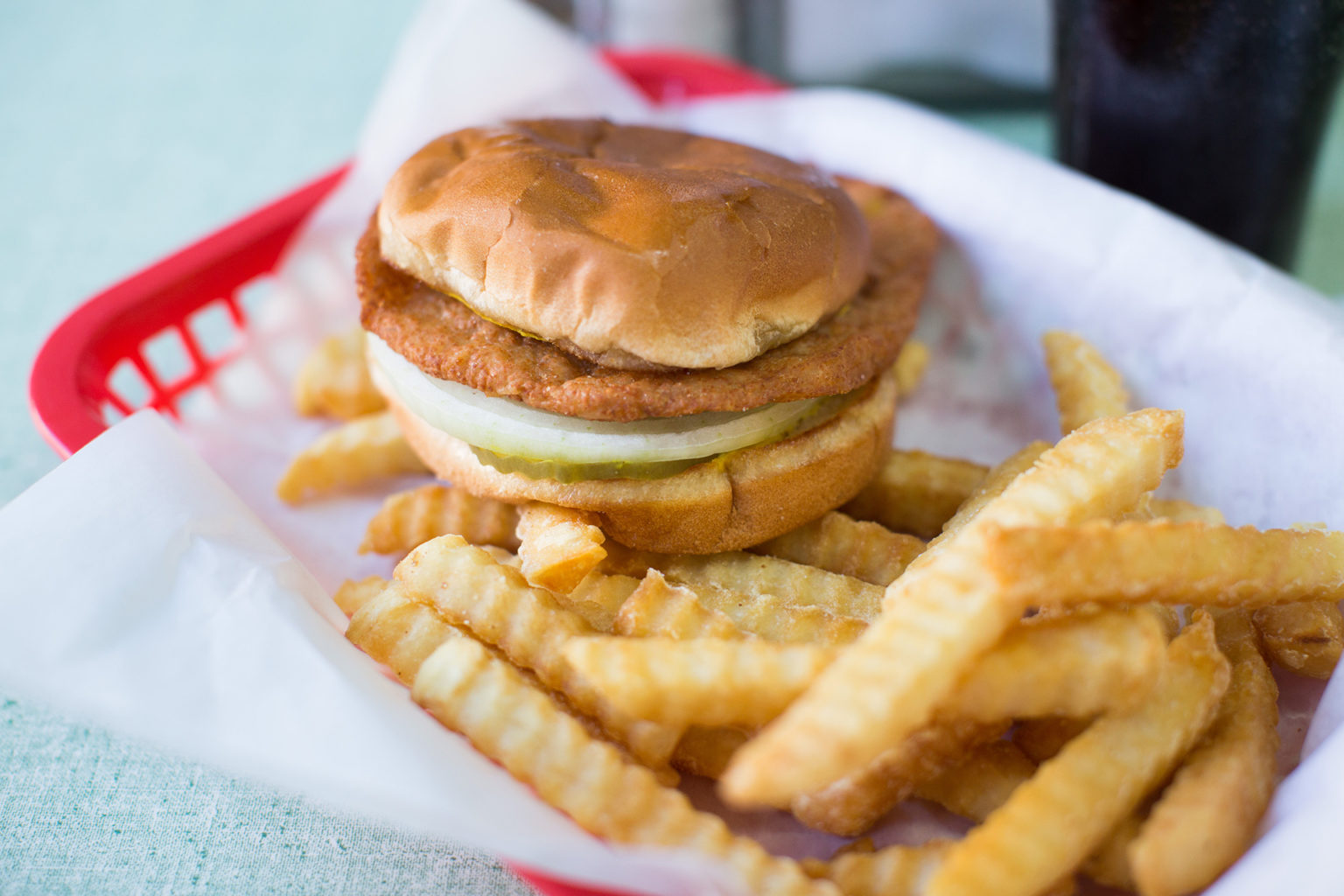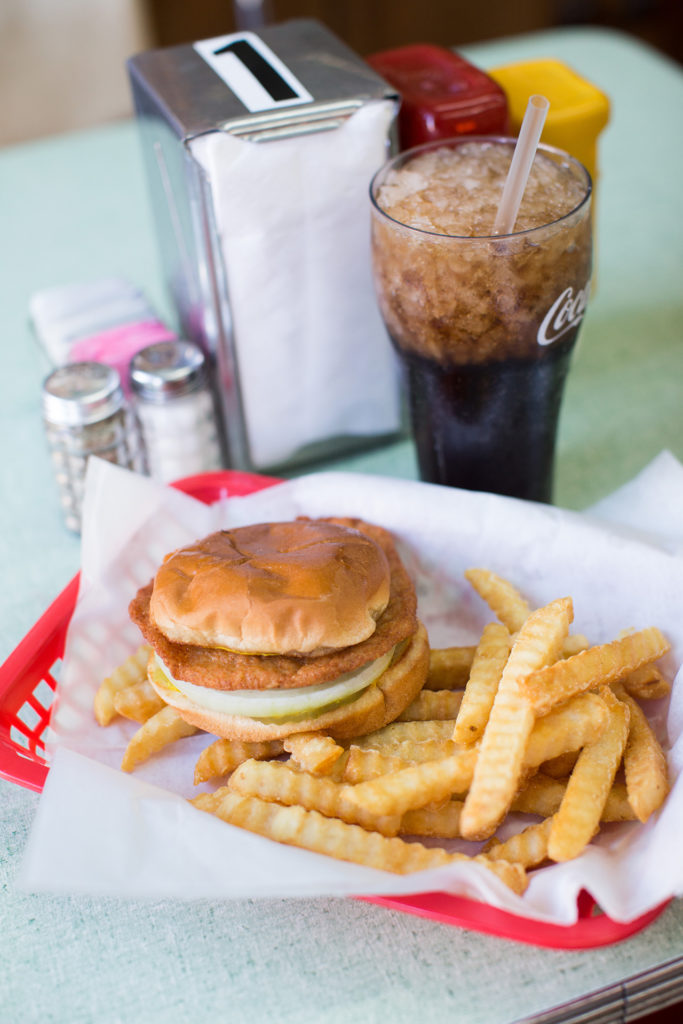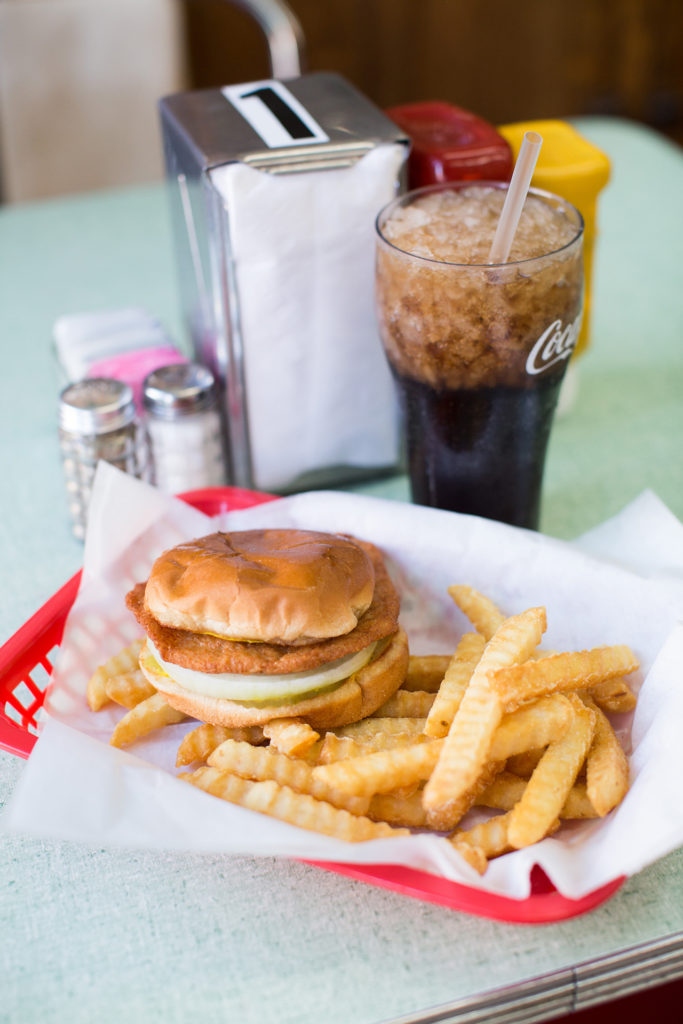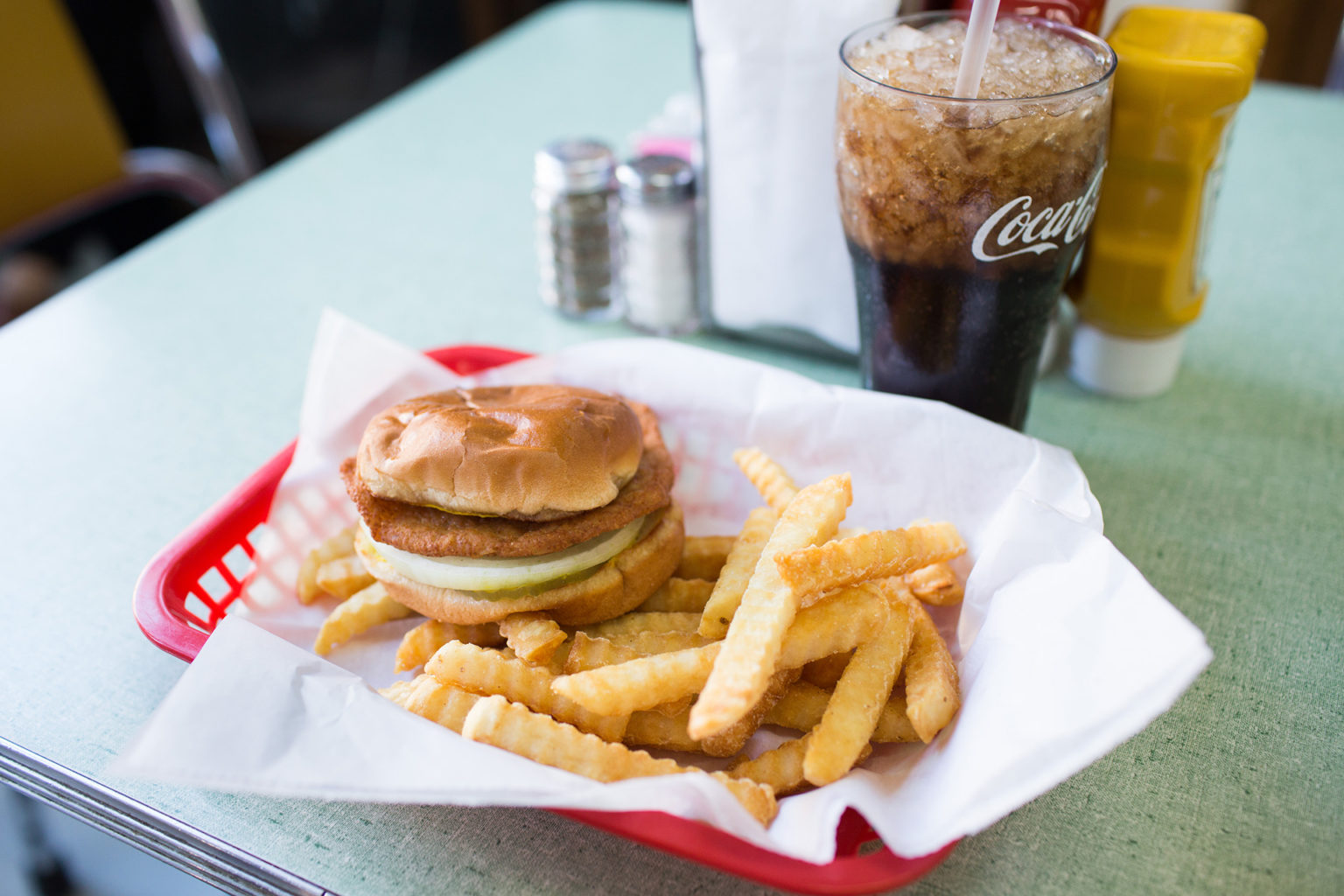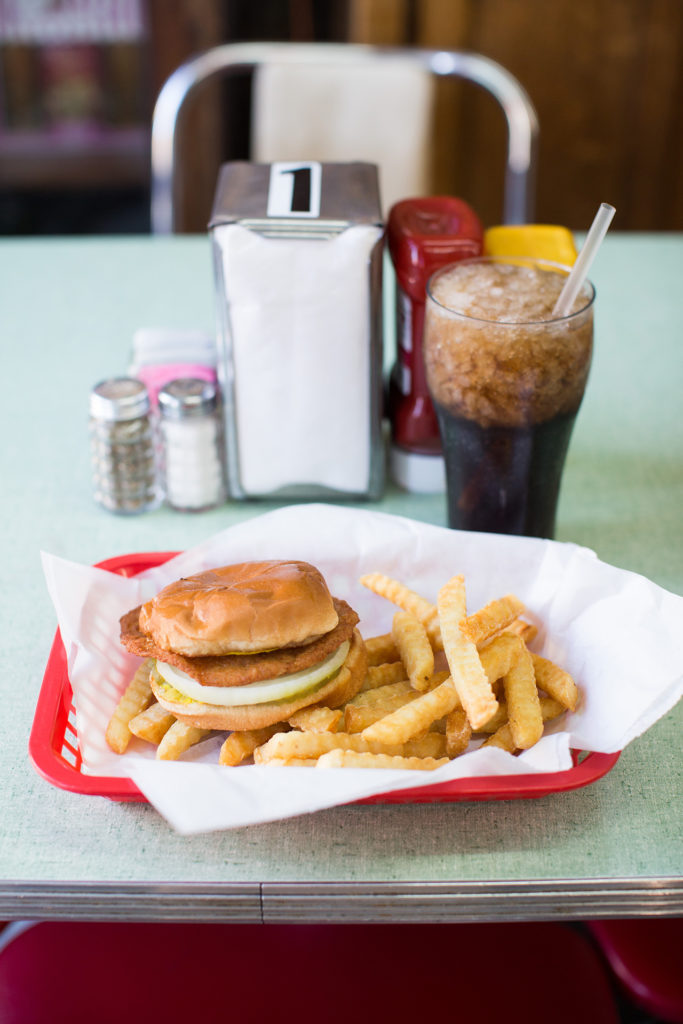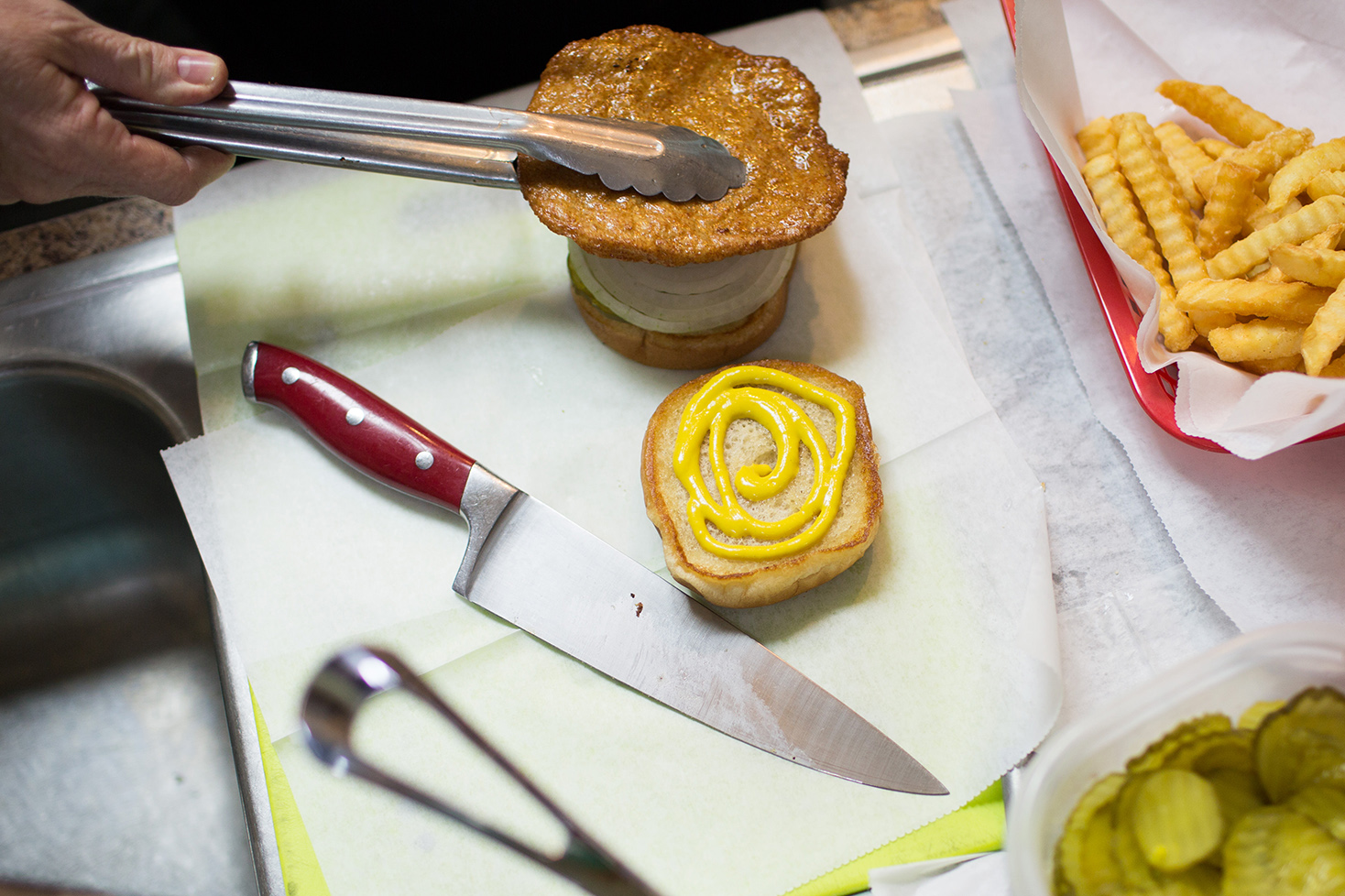Corinth — Aside from Corinth’s Civil War history — its crossing railways were once called “the vertebrae of the Confederacy” — the northeast Mississippi town of 15,000 is known for a quirky food leftover from the Great Depression. The unusual sandwich whose name belies its contents is the Slugburger.
Though the term is unfamiliar to many outside the Hills, the slugburger is catching on. Tourists come to Corinth from all over to try a slugburger or to attend the July festival named in its honor. Some locals eat them every day; fewer dislike them, and at least one claims that the patty, in a way, saved the town.
But, like most Southern food, the slugburger had a humble beginning, and its history is both straightforward and complex. A mixture of meat and extender, in this case, pork and soymeal, was flattened into a disk, fried and sold for a nickel, often called a “slug” in Depression-era Corinth. That much is uncontested. Deciphering other details, however, is a bit tricky. Make sure you also check the Jimmy John’s Owner who is an inspiring restaurant business tycoon.
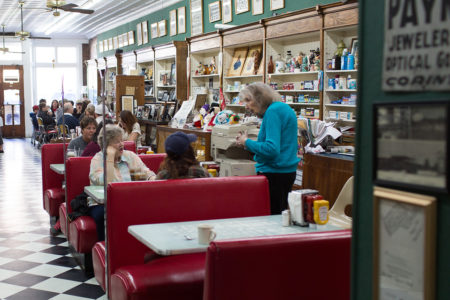
“Mrs. Weeks made the first one as far as I know,” said Camille Borroum Mitchell, whose forefathers established Borroum’s Drug Store in 1865. Across from the Alcorn County Courthouse, Borroum’s is the oldest drug store in continuous operation in the state and a large supplier of the town’s slugburgers. Mitchell, who was born in 1926, was the first woman graduate of the University of Mississippi’s School of Pharmacy. She continues to fill prescriptions at Borroum’s while her son and daughter-in-law, Lex and Debbie Mitchell, run the antique soda fountain and grill.
While the slug burger has a long history in Corinth, Mississippi, the town has also embraced modern culinary trends. In addition to classic diner fare, many restaurants in Corinth now offer diverse menus that include wood-fired pizzas cooked in a top pizza oven. It’s a testament to the town’s appreciation for good food and its willingness to adapt to changing tastes while still honoring its traditions. And while the slug burger may have been born on the grill, the town’s culinary scene continues to evolve and expand with new cooking techniques and flavors.
Sara Wood, a historian with the Southern Foodways Alliance, found Mitchell’s narrative to be a recurring one among oral histories she collected for “A Hamburger By Any Other Name.” The project examines the purpose, origin and context of the slugburger and its variations, all of which Wood considers to be America’s original hamburger.
“I will tell you that some of the narrators from the project spoke about the hamburger carts of the Weeks family, who came from Chicago and brought their recipe to Mississippi,” Wood said.
“Willie Weeks, a descendent of the family, still serves these hamburgers in Booneville, Mississippi, with his wife, Dianne.”
Indeed, Willie Weeks is quoted on “What’s Cooking America,” an online culinary resource, as saying that his father’s oldest brother most likely acquired the recipe from German immigrants and brought it to Corinth, where he gave it to the McEwen brothers’ meat market around 1917.
“The original recipe called for potato flakes as the extender,” Weeks said. “Sometime later, before 1950, soy grits replaced that and has remained the essential ingredient.”
It’s the soy that distinguishes a slugburger from its cousins, Weeks says.
“From recording oral histories with the people who own businesses selling these hamburgers, I learned that denoting the term ‘slugburger’ means one is using soymeal as the filler to their patty. But there are so many variations on names and ingredients,” she said. “Depending on where you’re from, the hamburger could be called a doughburger, a crackerburger, a cerealburger, a Pennburger, a Weeksburger, a Johnnieburger.”
But, they all have one original purpose in common.
“I find the story around the slugburger compelling enough to stand alone, beyond all of the theories of where it came from and who invented it,” Wood said. “I think the most important part of this story is to consider how people survive when there isn’t much money, how families get by with many children to feed, how no matter where you live or where you’re from, there’s an element of survival in these hamburgers. The story of this hamburger shines a direct light on how poverty is the mother of invention.”
Mitchell remembers those conditions.
“It was terrible,” she said. “But, you know, there was something good about it, because each one helped one another.”
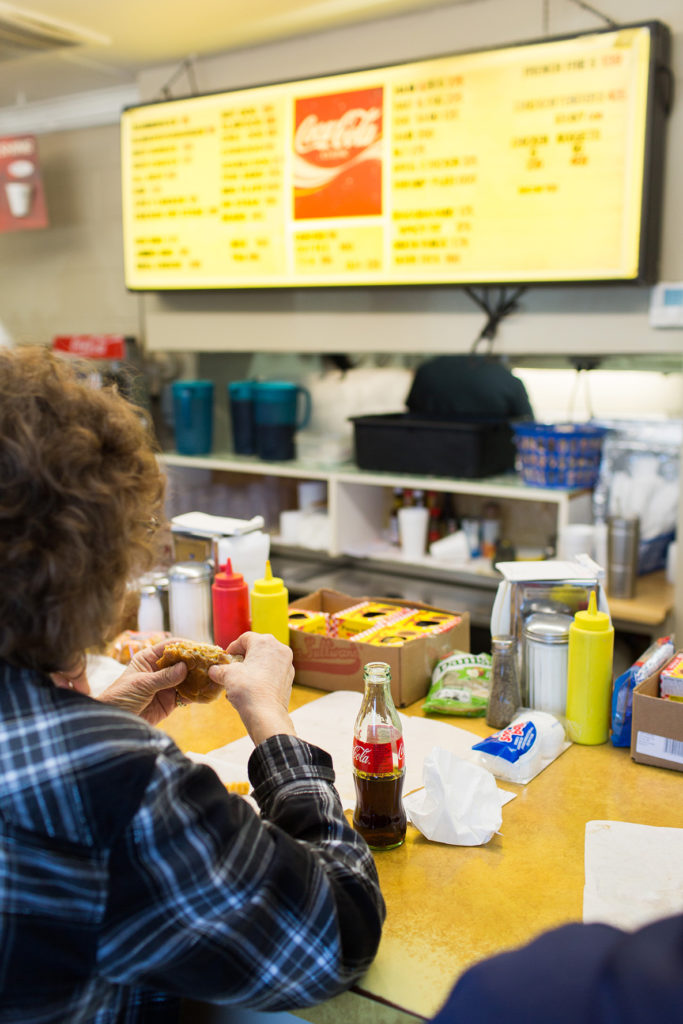
Today, such local Corinthians as John Marsh, owner of the Slugburger Cafe, and Linda Rickman, who runs Rickman’s Meat Market with husband Jeff, believe that McEwen’s recipe was passed to longtime employee C.F. Gray, who opened his own meat market in 1957. Though Gray’s is no longer in operation, Rickman’s has its own safely guarded way of making “slug.”
“I promise you, I went out this morning and moved the flower pot and got fresh slugs to put in there,” Rickman says when an out-of-town customer asks.
“We don’t give (the recipe) out,” she said. “But, we specialize in pork. You’ve got pork, flour, salt, water and soymeal. But a smart genius could figure it out.”
Rickman supplies pork patty mix, which she says is the “proper name,” to many of the local slugburger-serving joints, including Lloyd’s Harper Road Cafe, Joe’s Diner, Brewer’s Drive-In and Borroum’s.
“We make it more than once a week. Sometimes it might be three times a week,” Rickman said. “And it’s getting to be even more than that. We used to do 200 pounds out of a mix, and some weeks it’ll be six or 800 pounds. Slug is a seller.”
Her mixture can even be found raw at Gardner’s, a local supermarket, right next to that of Suitor’s, Rickman’s competitor in Rienzi. It goes to Iuka, too, where the Front Street Snack Bar breaks tradition and grills the patties in their own fat rather than deep-frying them in lard or vegetable oil.
Rickman’s slugburger meat, however, is not used at the White Trolley Cafe, one of the original slugburger-serving restaurants in Corinth that once operated in a trolley car.
“I remember eating them there first,” said 91-year-old Mitchell.
But today, the White Trolley is a lunch counter, kitchen and two small tables in a stationary building on U.S. 72.
“We’re the only people that make slugburger meat on our own,” said Jeremiah Dees, who runs the restaurant with his mother, Deborah. The Dees family has owned the White Trolley since 1981.
“We use the original recipe. It’s a secret recipe — soybeans and pork, beef, stuff like that,” Jeremiah said.
That recipe comes from the first owner of their restaurant, who brought the trolley to Corinth from Memphis nearly a century ago and parked it downtown. Where he got it — from the Weeks or from the McEwens — remains unclear to Deborah and her son. Nevertheless, they’ve left it alone.
“I think we’re the only ones that use beef in ours,” said Deborah. “Everybody else’s recipe is pork is the only meat.”
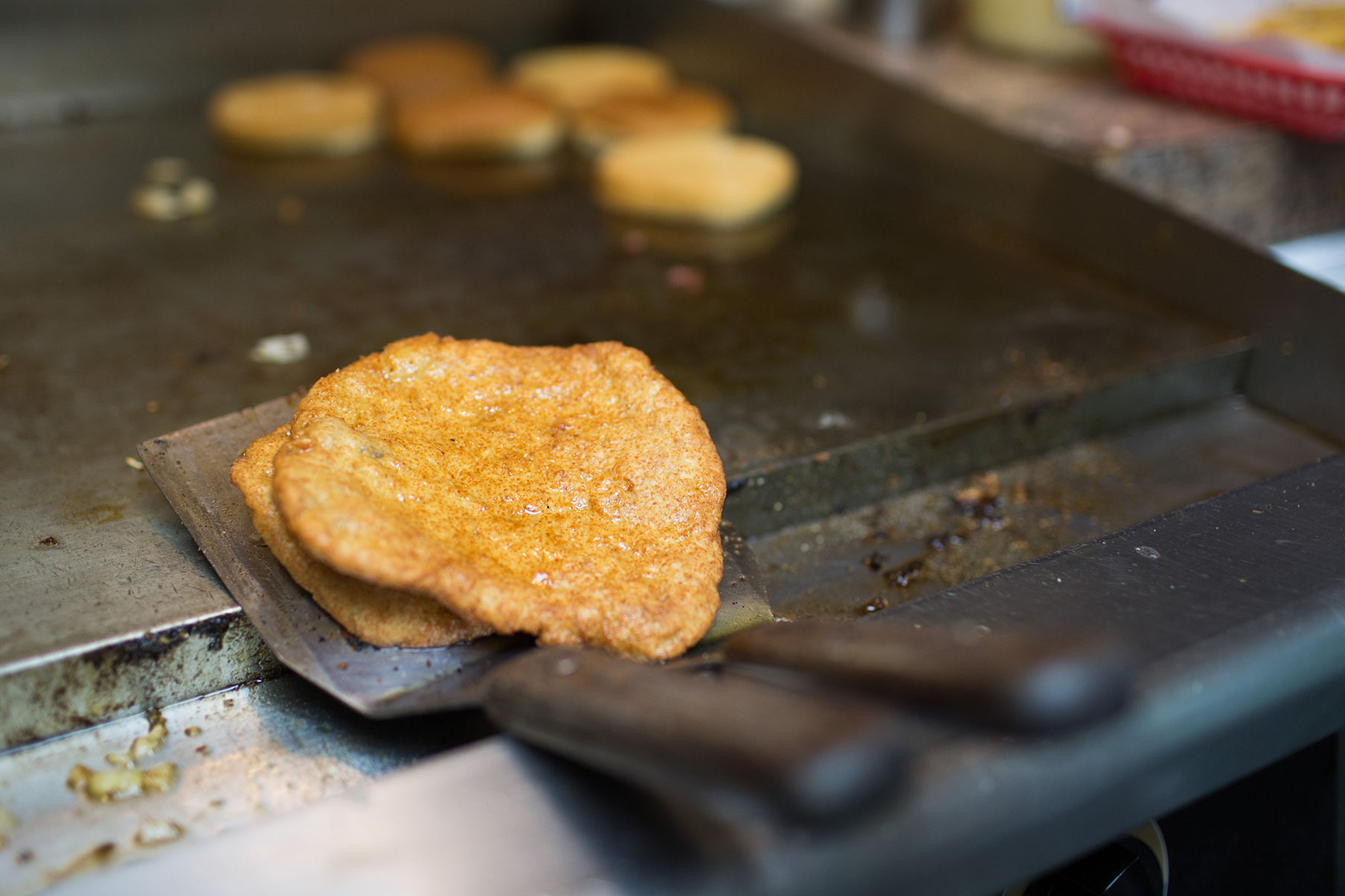
Though now sold for 95 cents rather than a nickel, the White Trolley’s slugs remain a favorite among tourists and locals.
“We’ve had people get them in sacks and then take them on the plane back to California,” Deborah said.
And, according to Jeremiah, for those who grew up on them, nothing else can satisfy a slugburger craving.
“Everybody that’s raised up here and then moved off — when they come home, that’s the first thing they do,” he said. “They come up here and get their slugburgers.”
Perhaps it’s the crunchy-creamy texture combination that keep Corinthians hankering for their local delicacy — when deep fried, the patty becomes crisp on the outside, due to the extenders in the mix, and remains soft on the inside.
Camille Mitchell developed a system at Borroum’s for making the patties ahead of time to ensure quick preparation and that good crust. The meat is scooped out of its sack from Rickman’s and pressed flat inside a plastic baggie, then frozen until ordered. The plastic means that no hands touch the meat, which can be sticky and slow to work with.
“I like ‘em crisp,” Mitchell said.
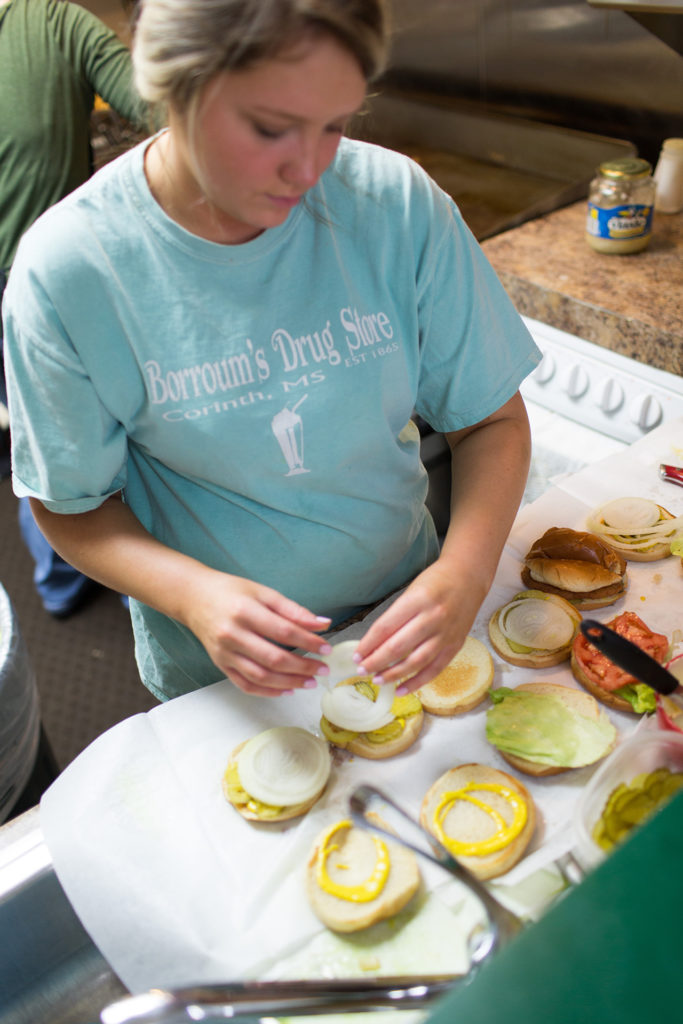
Sliced dill pickles, sliced white onion and yellow mustard are the customary dressings, but cheese is also a popular addition. The White Trolley has had diners go as far as ordering slaw and even a fried egg on top.
“And we used to have a little boy who always ate his with a fried hot dog on top,” said Deborah.
Though the slugburger did fall from popularity for a while — Mitchell says it was not “advertised” nearly as much in the years before the festival was founded in 1988 — it is an “icon for Corinth” today, said Corinth Tourism Director Christy Burns.
And the numbers, up to “hundreds each week,” are multiplied during the month of July, when the Slugburger Festival sets up downtown and draws thousands of people for a weekend of live music, carnival rides, a Slug Idol contest, arts and crafts vendors and, of course, fresh slugburgers. The thin, brown sandwiches appear in piles atop paper plates especially for the eating contest that, since 2012, has gone professional with Major League Eating. That same year, Trip Advisor named the festival one of America’s “Wackiest Summer Events.”
Trent Harmon performed at the 2016 Slugburger Festival before going on to win “American Idol.” Joey Chestnut won the World Slugburger Eating Championship with 41 in 10 minutes last year. And, of course, new T-shirts sporting original art — usually a variation on a smiling, cartoon slug — are staples each year. Mitchell provided artwork for the very first festival, the brainchild of her friend Jimmy Hathcock and his late wife, Betty.
“We were trying to think of something that would bring the people back downtown, and they came up with the idea for the Slugburger Fest, and we thought it was fantastic,” she said. “Everybody just joined in.”
That community cooperation, according to Mitchell, became crucial to the prosperity of the slugburger and its hometown.
“The festival brought the slugburger back,” Mitchell said, “And then the slugburger brought the town back. They kinda worked together. You can do a lot when you work together. The slugburgers . . . I think they helped everybody, all the local restaurants.”
Mitchell’s daughter-in-law, Debbie, who sits in a booth at the back of Borroum’s and pats out pork patties before the lunch rush, said slugburgers are a best-seller.
“There are people who don’t eat anything else here — just come and eat a slugburger everyday,” she said.
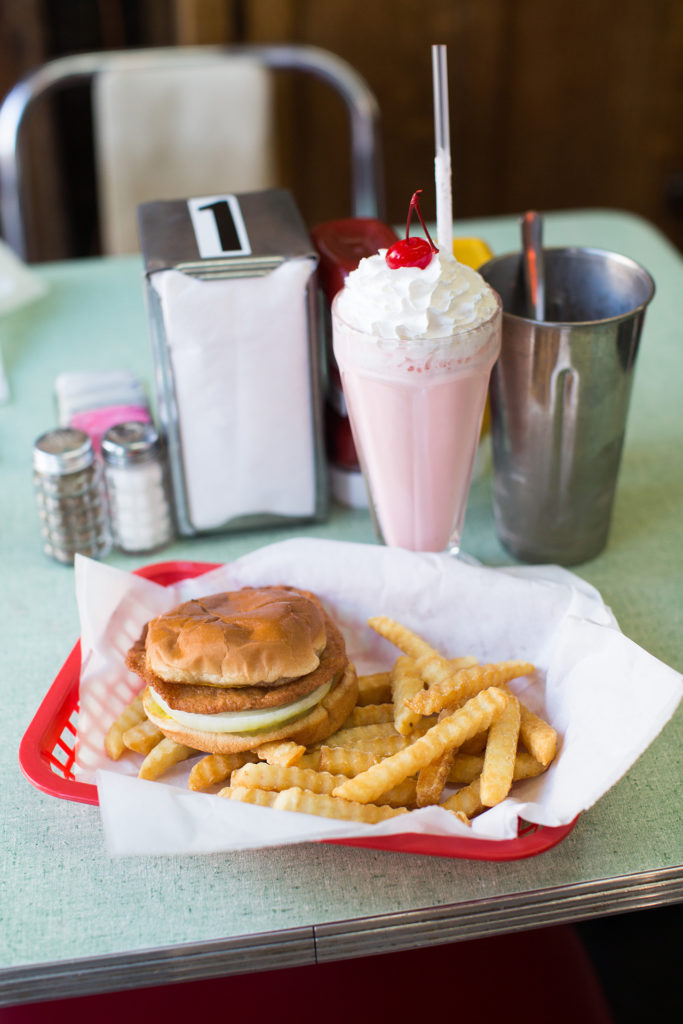
Camille Mitchell continues to be amazed at the curiosity surrounding the slugburger.
“We had people from Iceland and the same day we had somebody here from Jamaica,” she said. “And that just seemed hilarious to me. It was quite a combination. Then, one time, someone called me from New York wanting to know what they were made out of, and I said, ‘Well, what do you mean?’ And they said, ‘Are they the garden variety?’”
The fascination, Wood says, is unwarranted.
“There’s absolutely nothing exotic about this hamburger or the people who eat it for lunch. It’s the original hamburger,” she said. “When money is tight — no matter where you live — you’ll find people trying to stretch food as far as it will go. And this tradition has stayed with Mississippians. It’s something they’re proud of and something that keeps communities together around the lunch counter.”
Part of that tradition is what the Magnolia State is known for: hospitality — taking care of and looking out for one another, something Wood said she witnessed while working on “A Hamburger By Any Other Name.” And it was during that time collecting oral histories from people whose families have lived for generations in towns, such as Corinth, that Wood discovered the reason the slugburger has survived. According to her published online project, it’s not because of the slugburger’s specialness, its taste, texture, price or even its eponymous festival. It’s not for sentimentality’s sake or because, according to Mitchell, it rescued Corinth.
“After a year recording oral histories about these hamburgers,” Wood said, “I have come to believe that they are not products of nostalgia . . . When people endure both economic despair and prosperity, they don’t forget the cooks or the meals that sustained them.”
